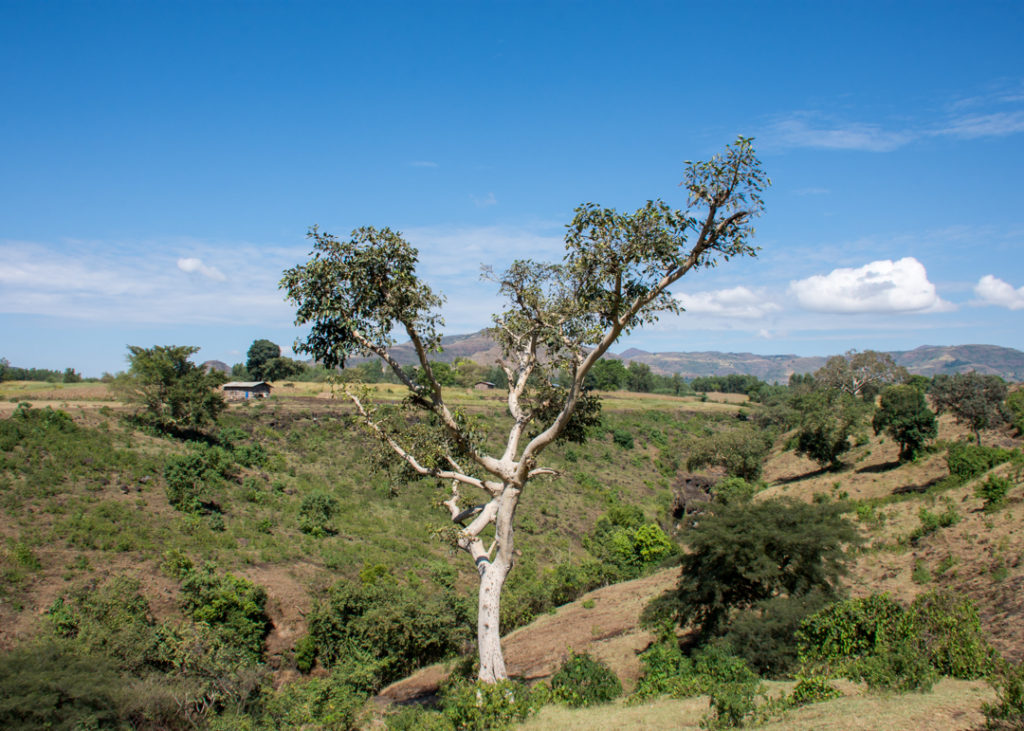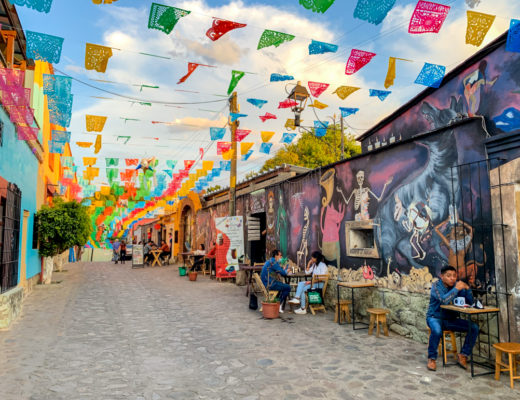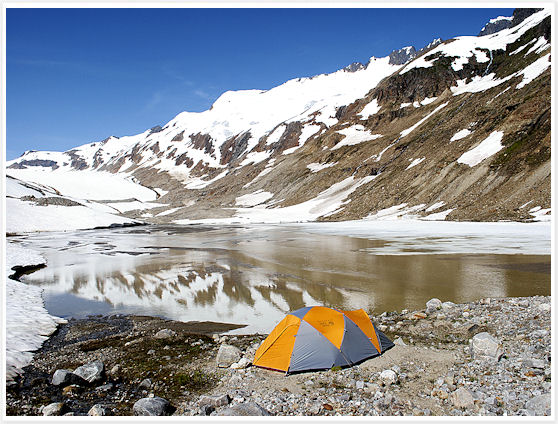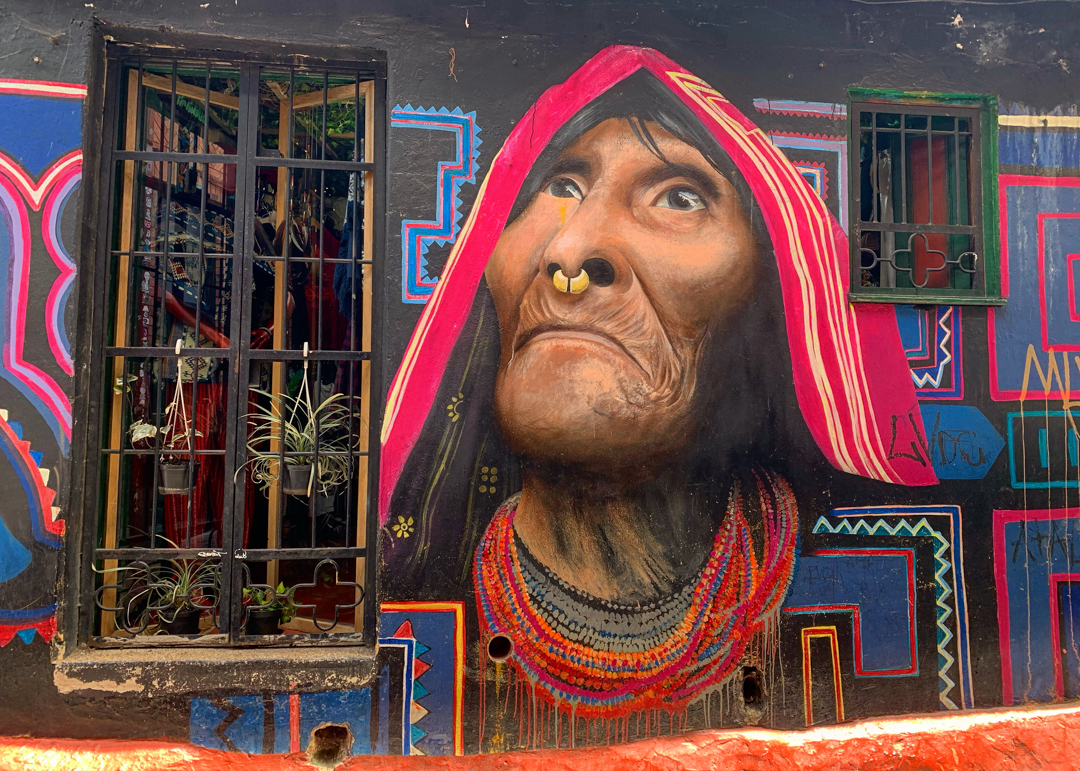With the castles of Gondar behind us, we made the 3-hour journey down to our next destination of Bahir Dar, passing beautiful scenery with fields of bright-yellow daisies.
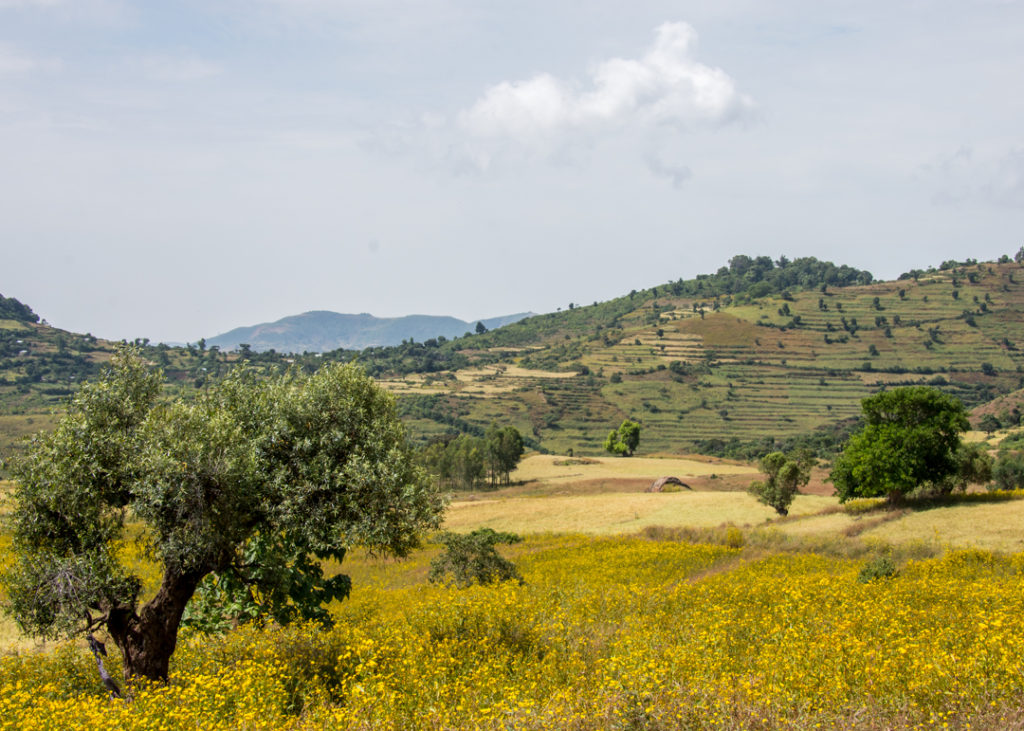
We stopped en route to visit one of the main markets in the area to check out the local offerings.
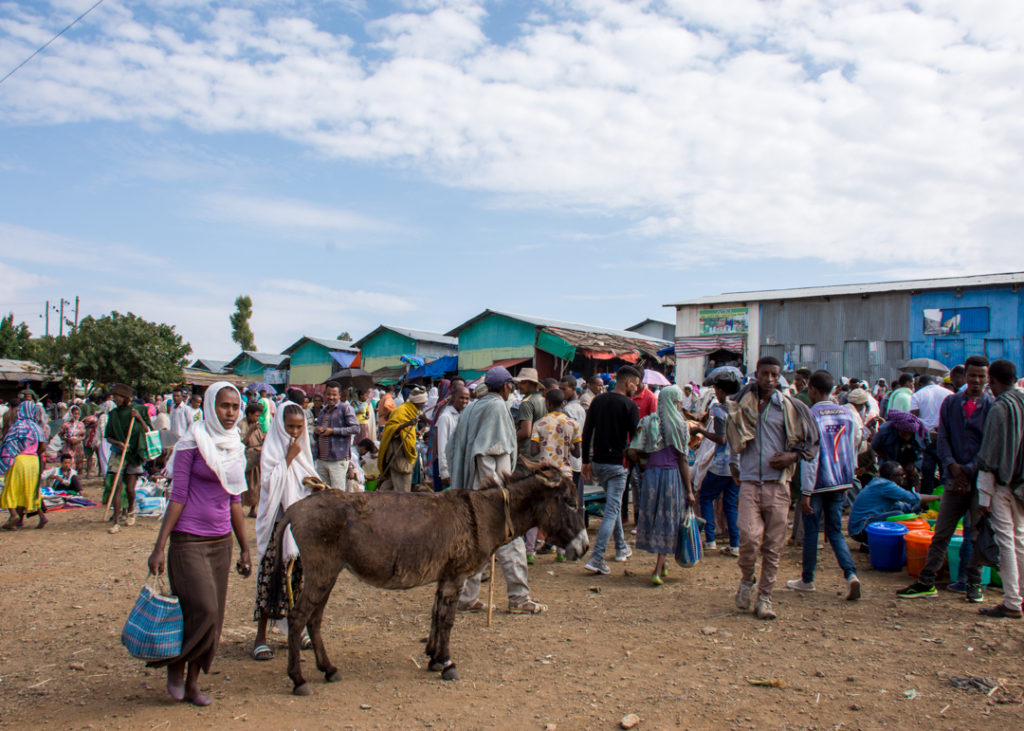
To say it was packed would be an understatement. Surely everyone living within a 10 miles radius was here today as markets are well known gathering places in Africa – you get both your shopping and gossiping done in one go!
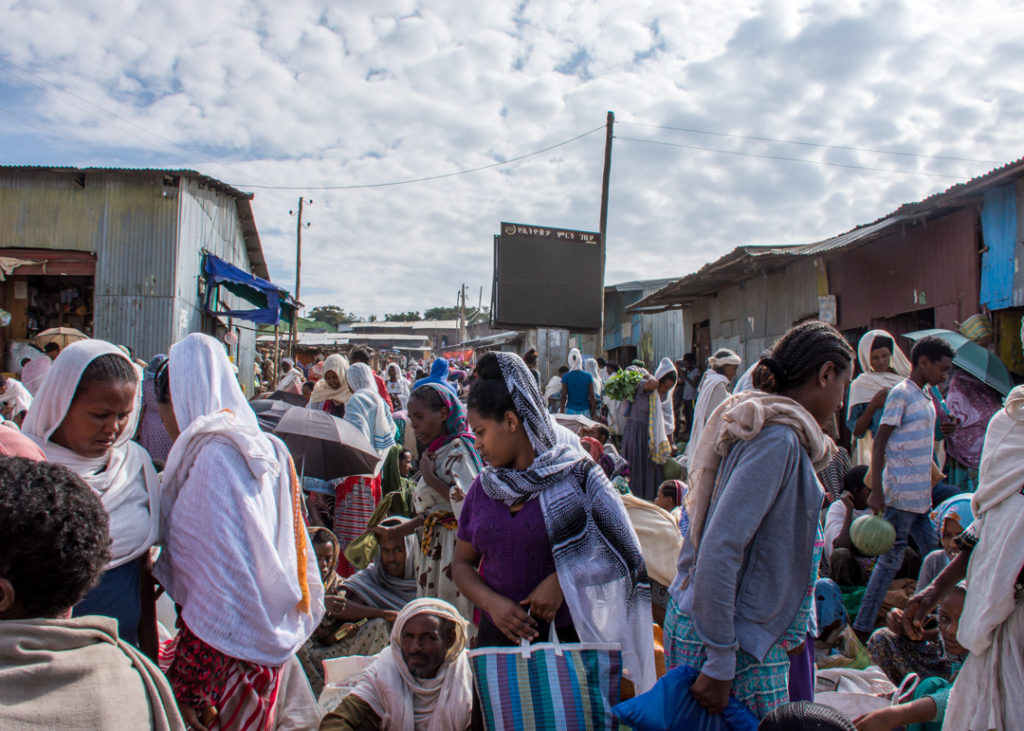
Carefully stepping through the crowd and looking down at the ground soon unveiled a myriad of goods for sale.
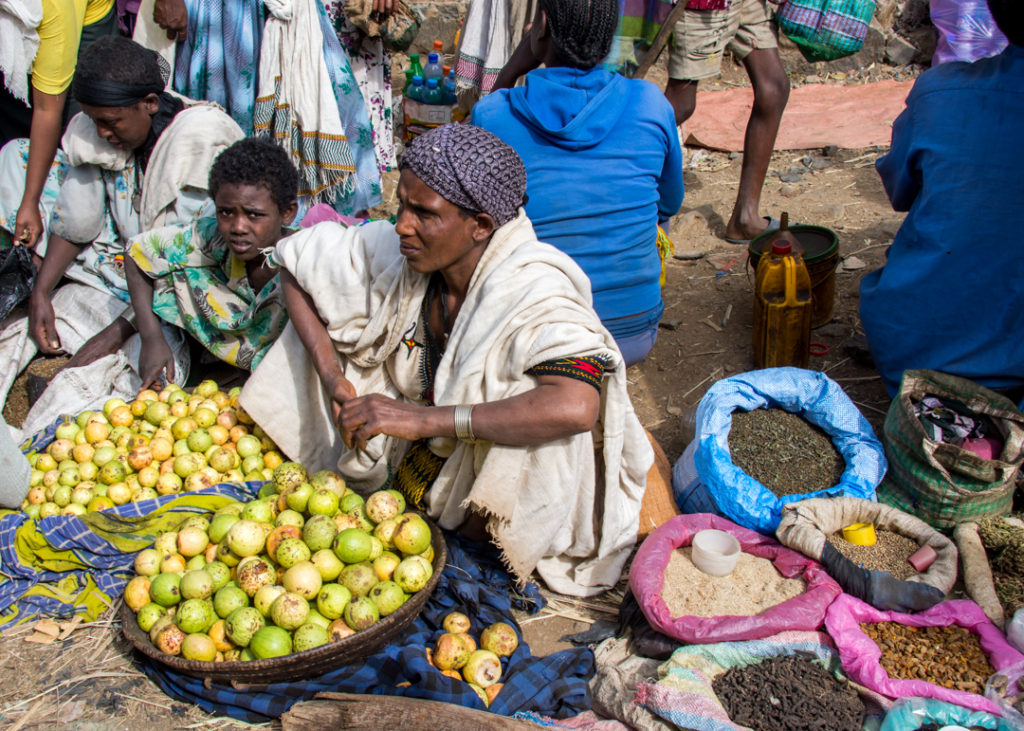
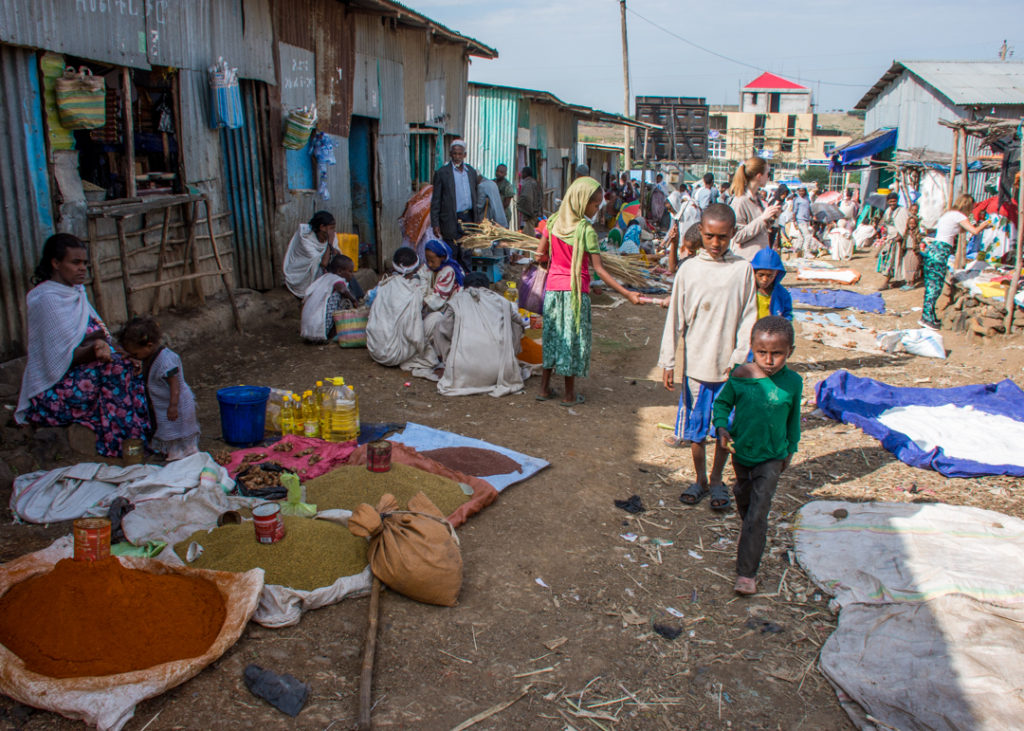
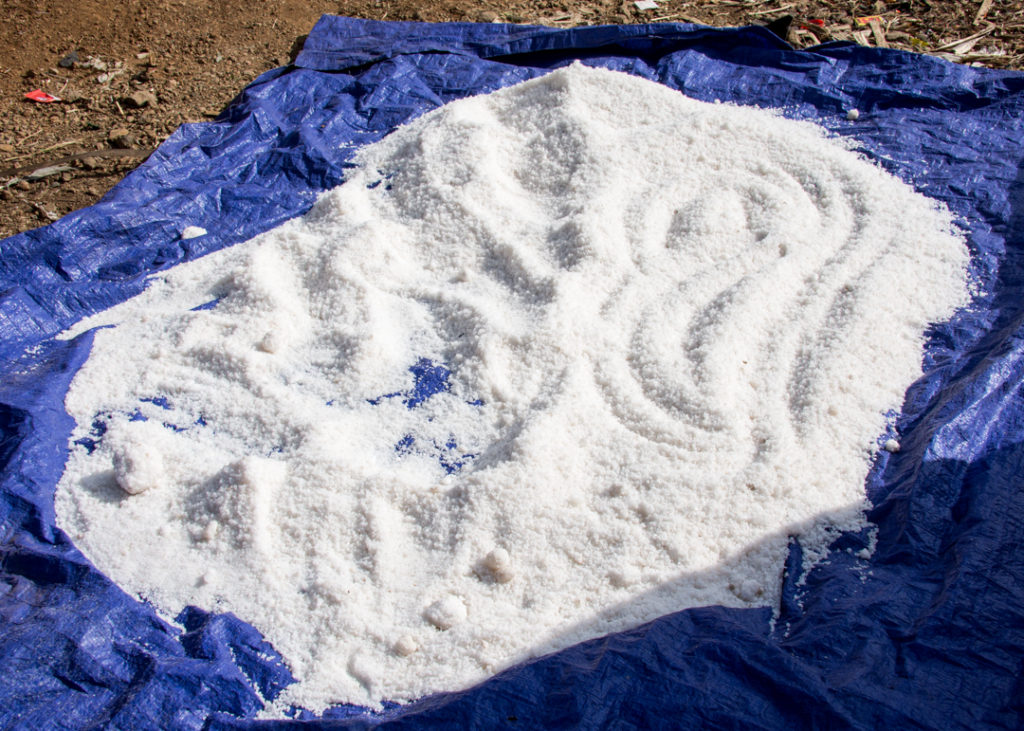
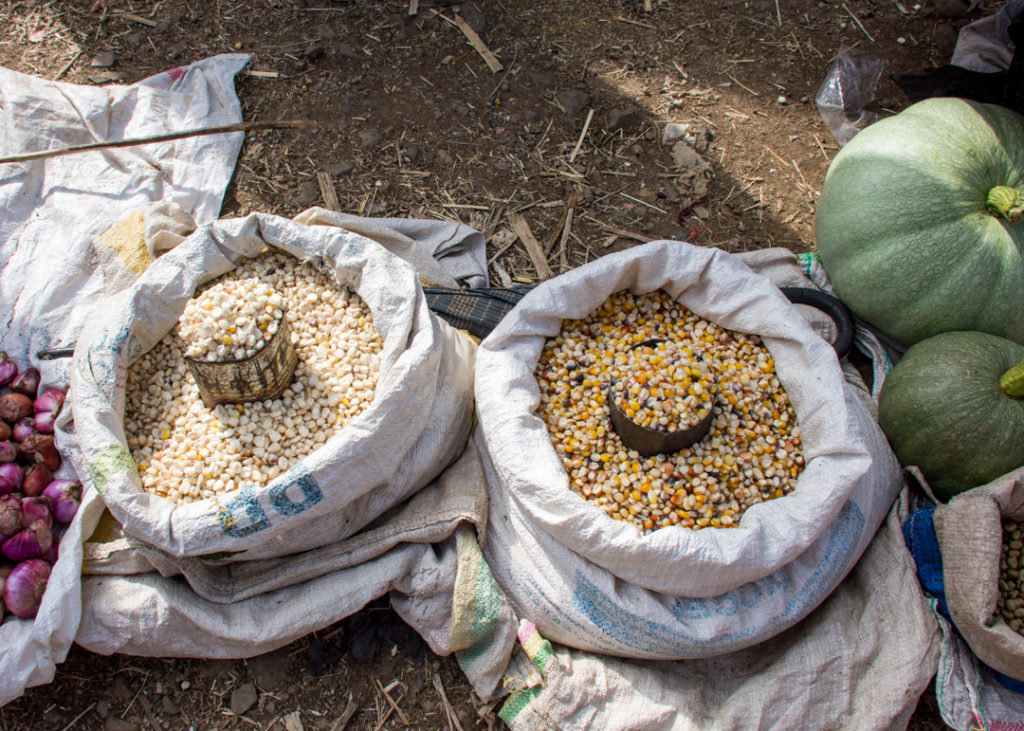
I always get so much pleasure visiting local markets in every country I go to, not only to learn about their eating habits but also to get immersed in the local life and dynamics.
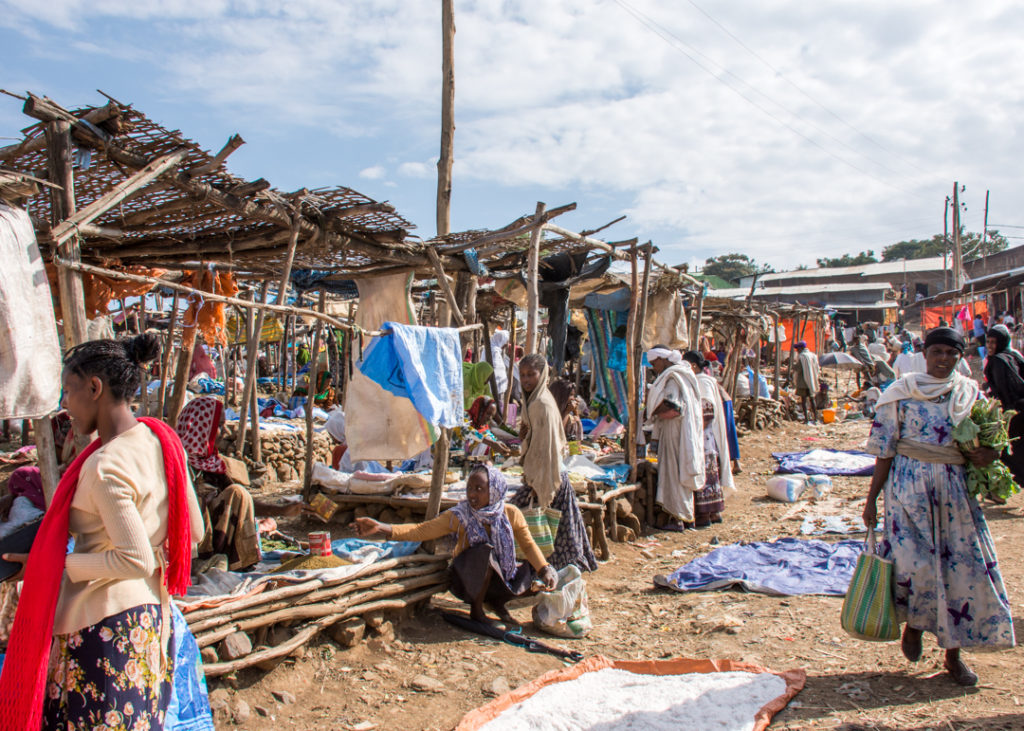
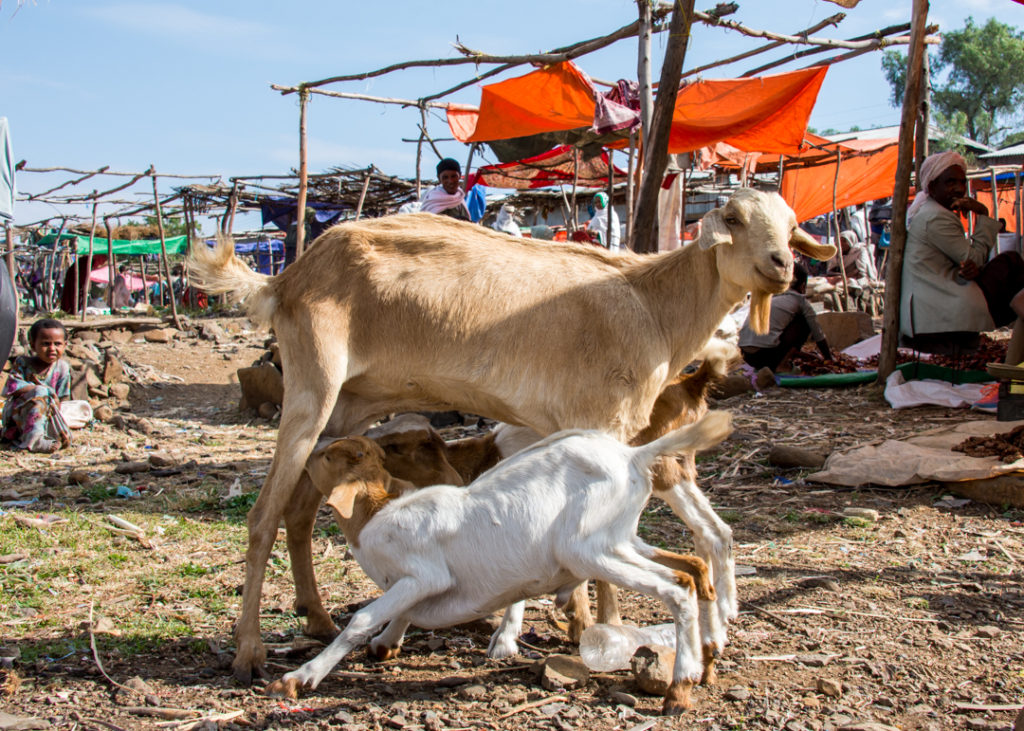
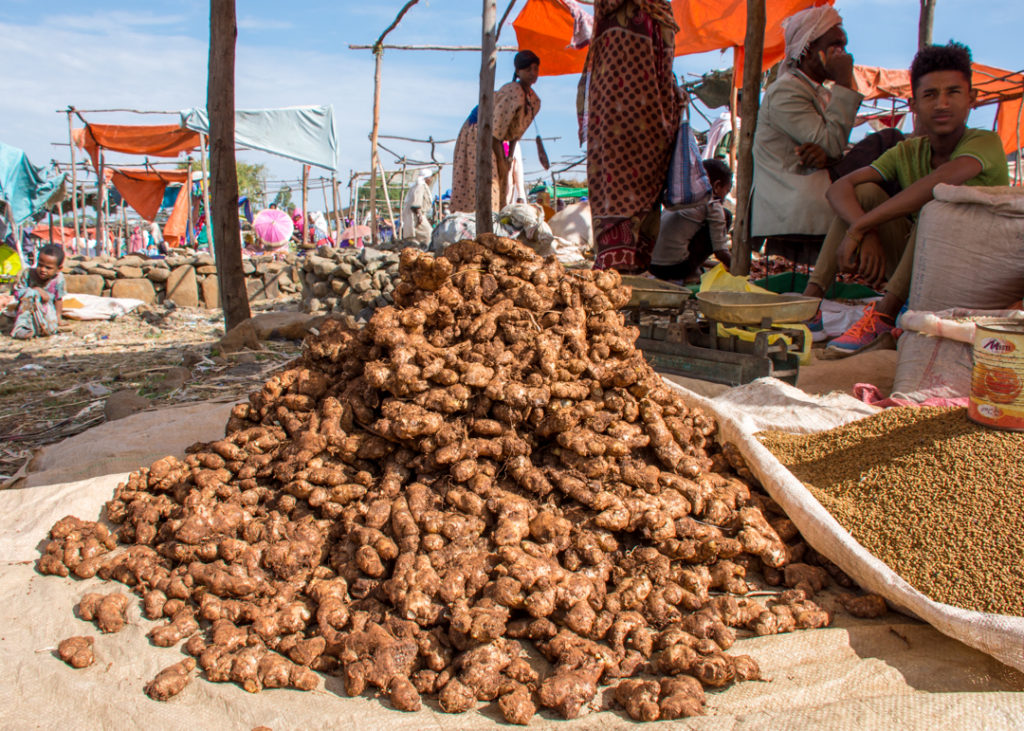
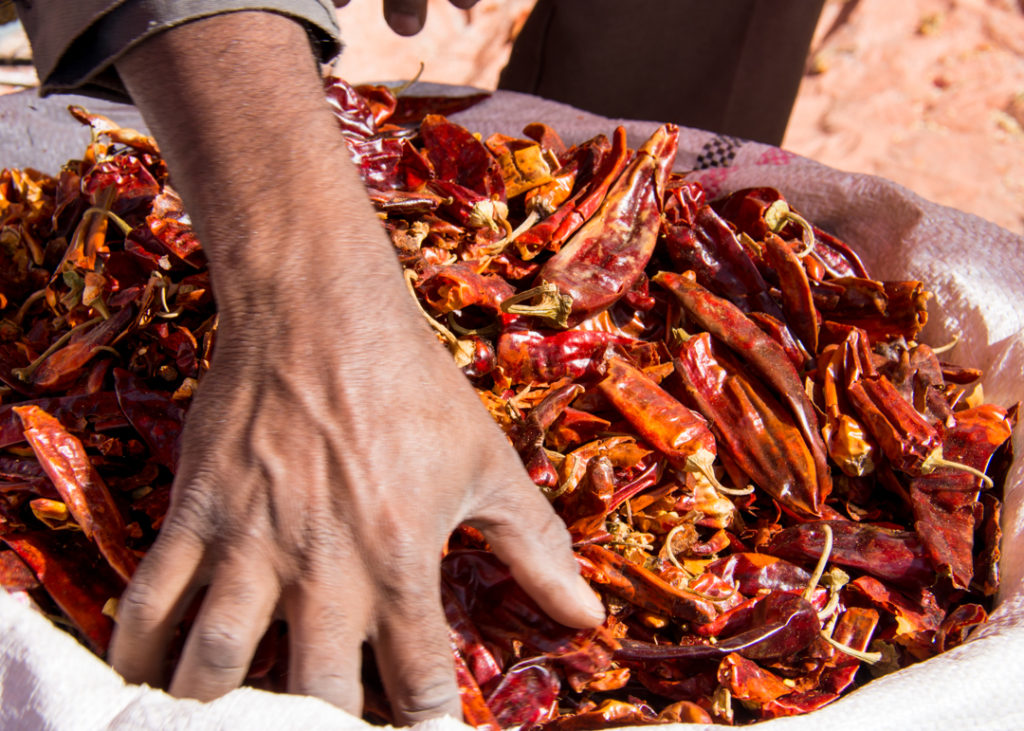
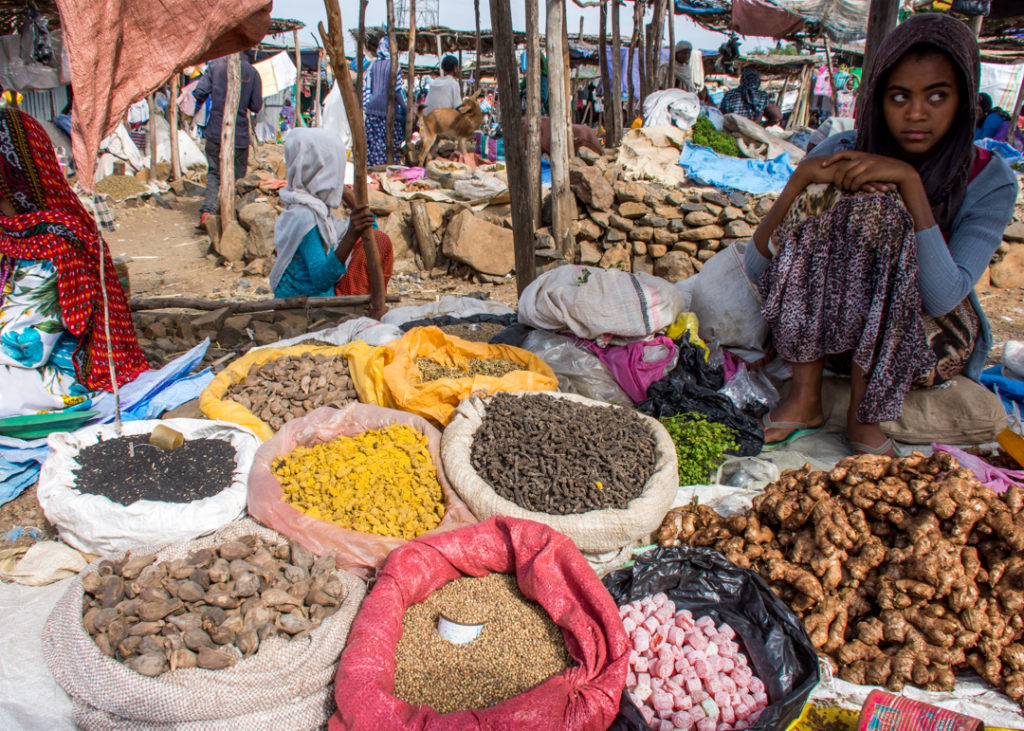
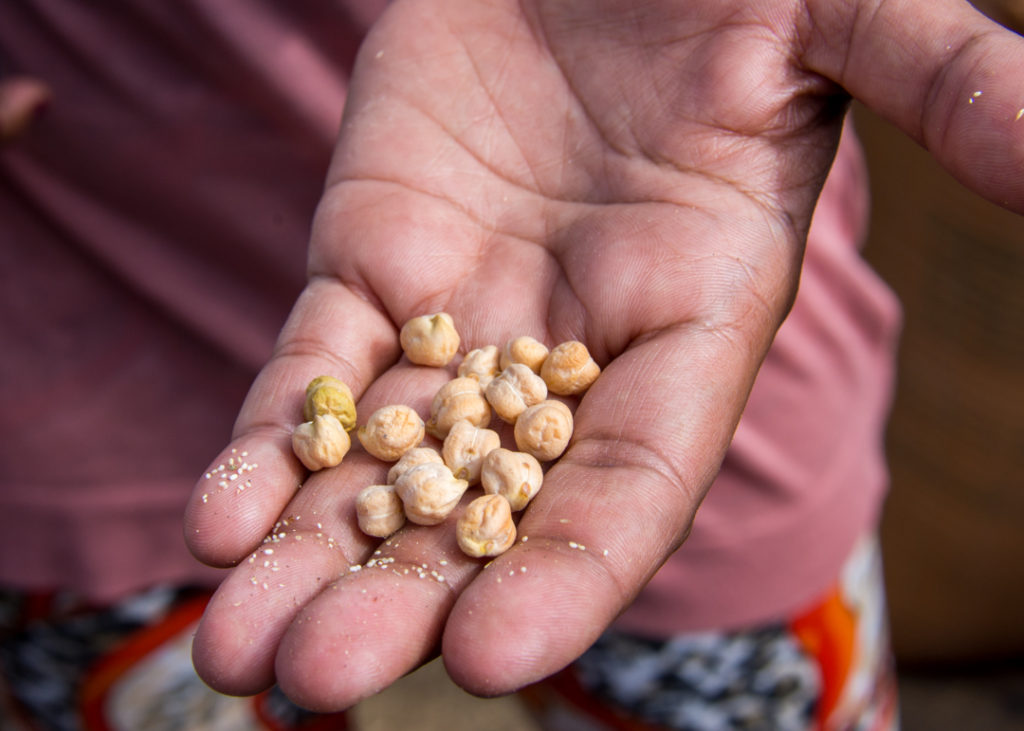
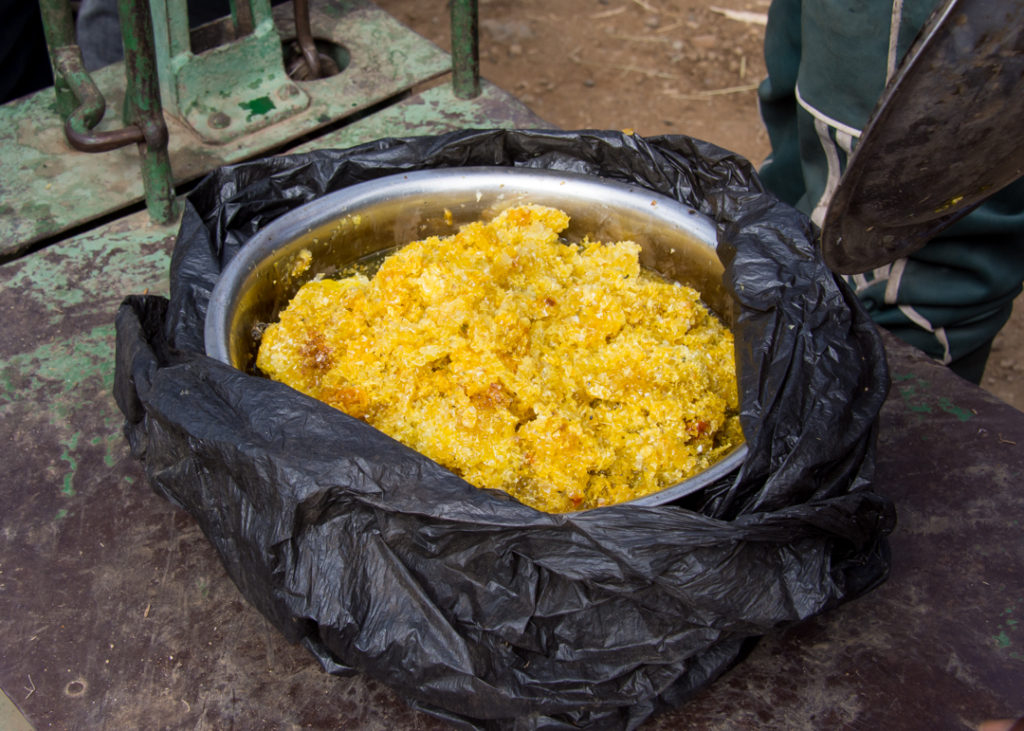
Back on the road with a few more packages, we continue to pass through farmland and villages.
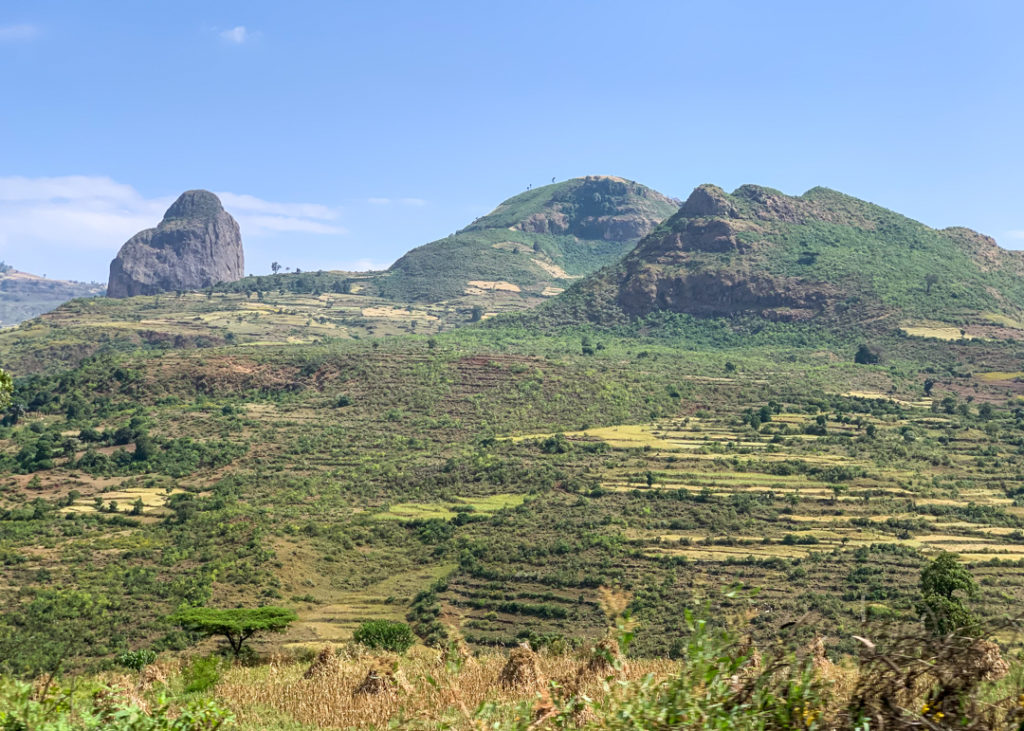
There was a goat market going on – not exactly a souvenir shopping stop so we kept on driving!
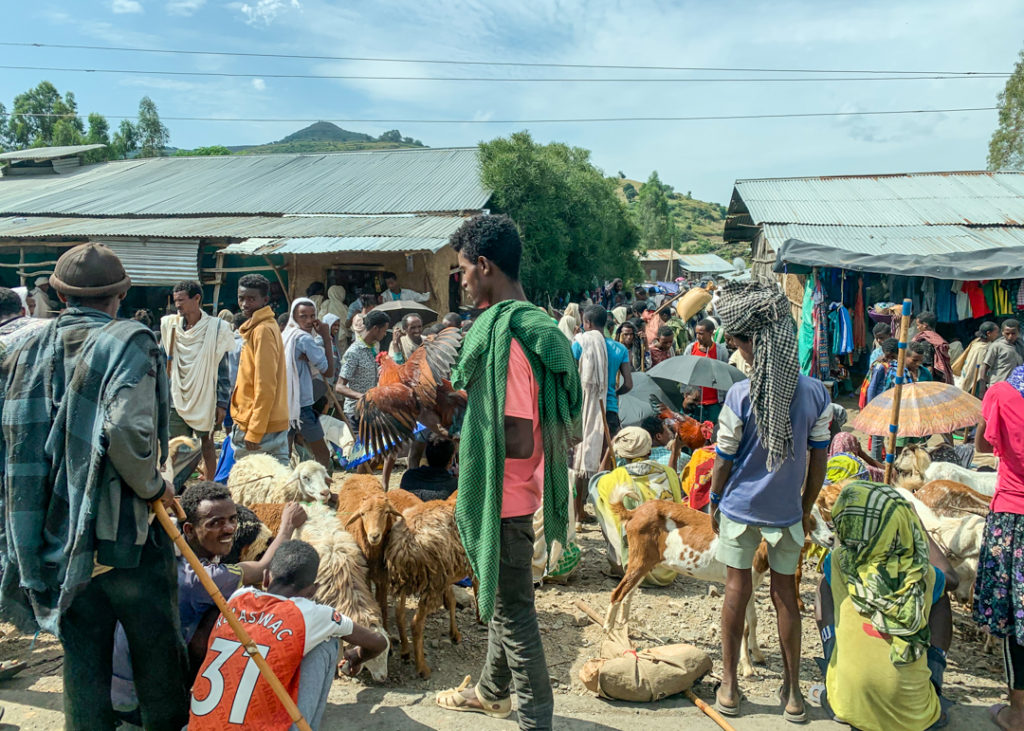
The landscape kept on shifting, offering features as unique as this rock formation which is supposedly called ‘the devil’s nose’.
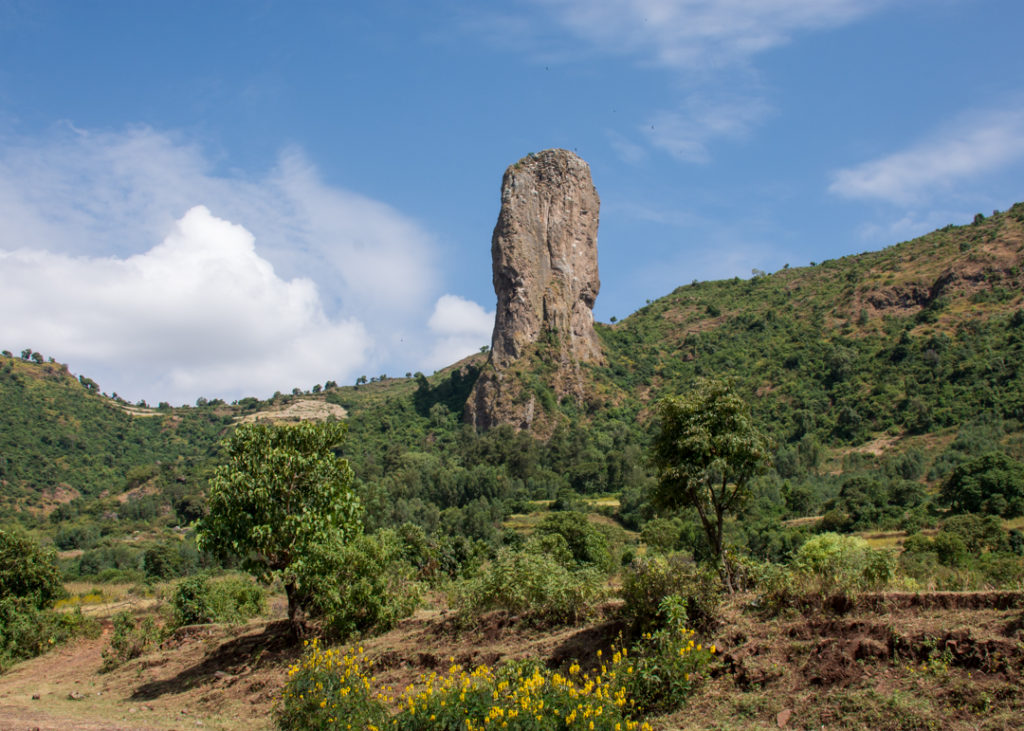
We arrived in the gorgeous midday sun in Bahir Dar, the third largest city in Ethiopia on the shore of Lake Tana. This beautiful lake is the biggest in the country at 68 km wide and 73 km long and we immediately got on a boat to explore it.
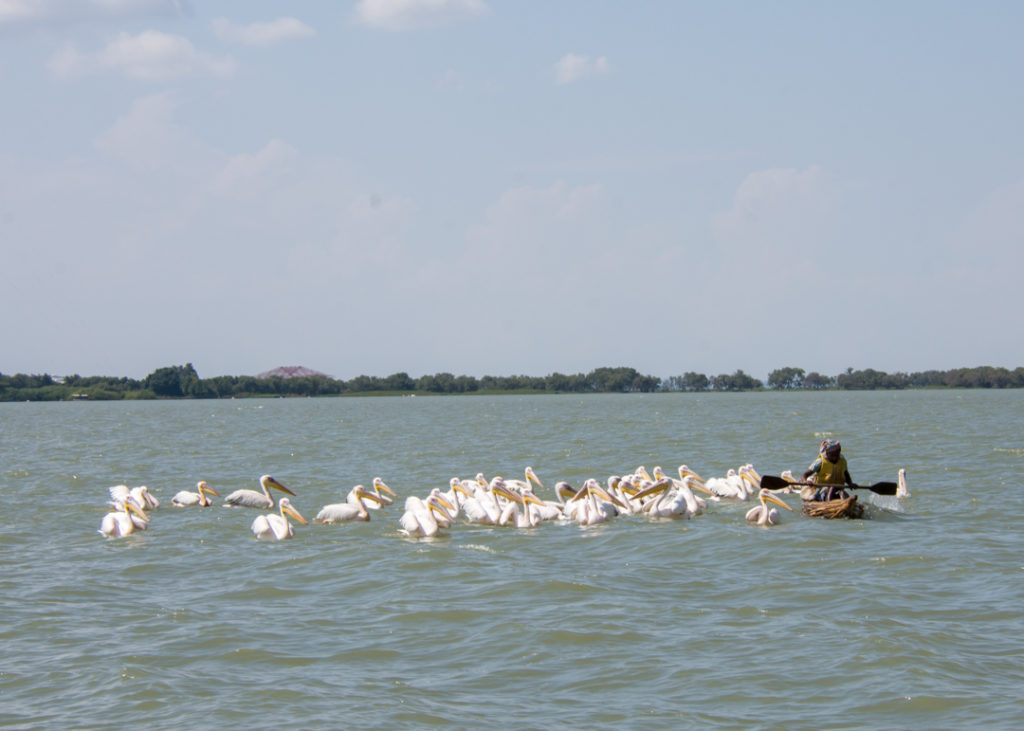
As if on cue (actually it surely was), a man on a small boat quickly appeared followed by a squadron of pelicans, feeding them to keep them around for our enjoyment.
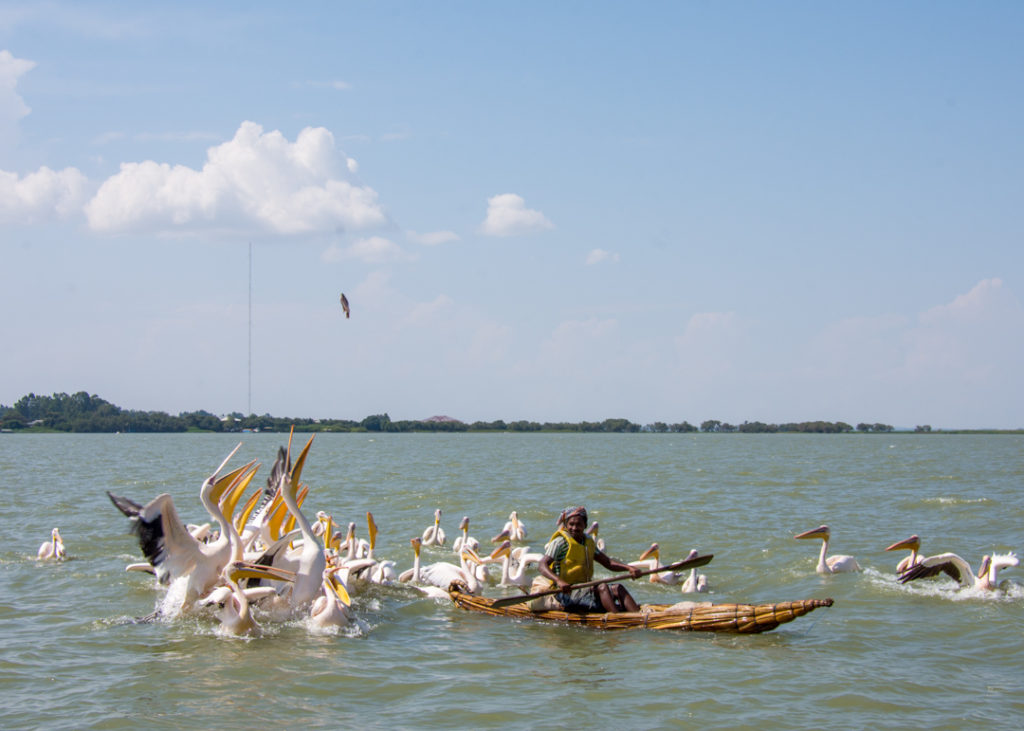
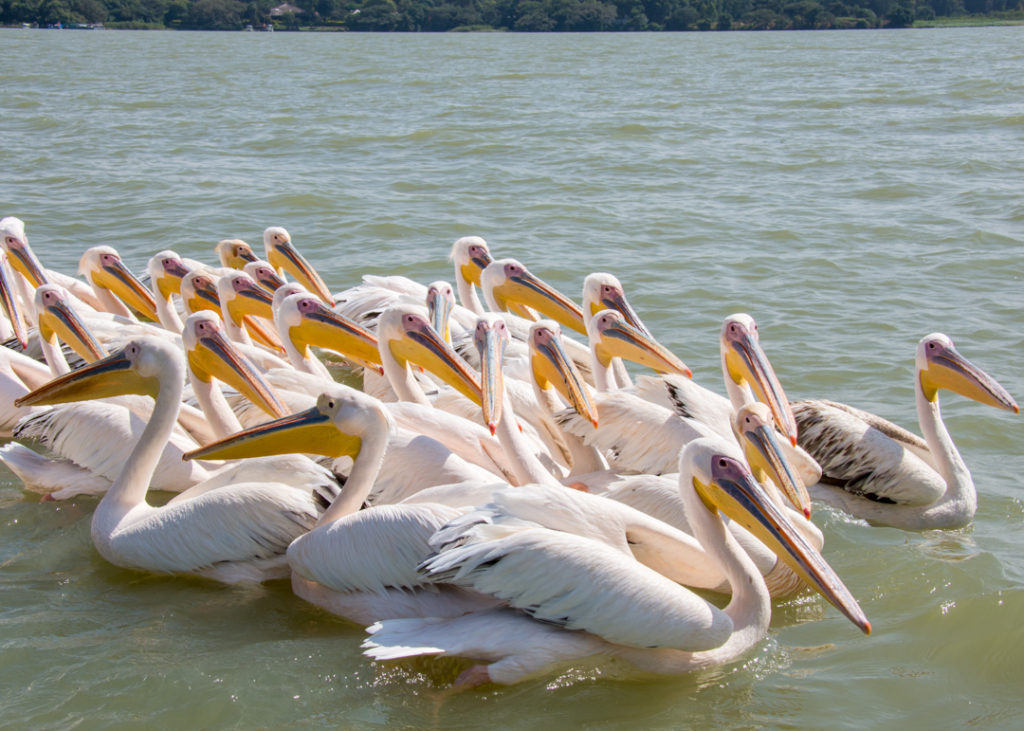
Such large birds with such enormous mouths made quite a spectacle, fighting for one little fish…
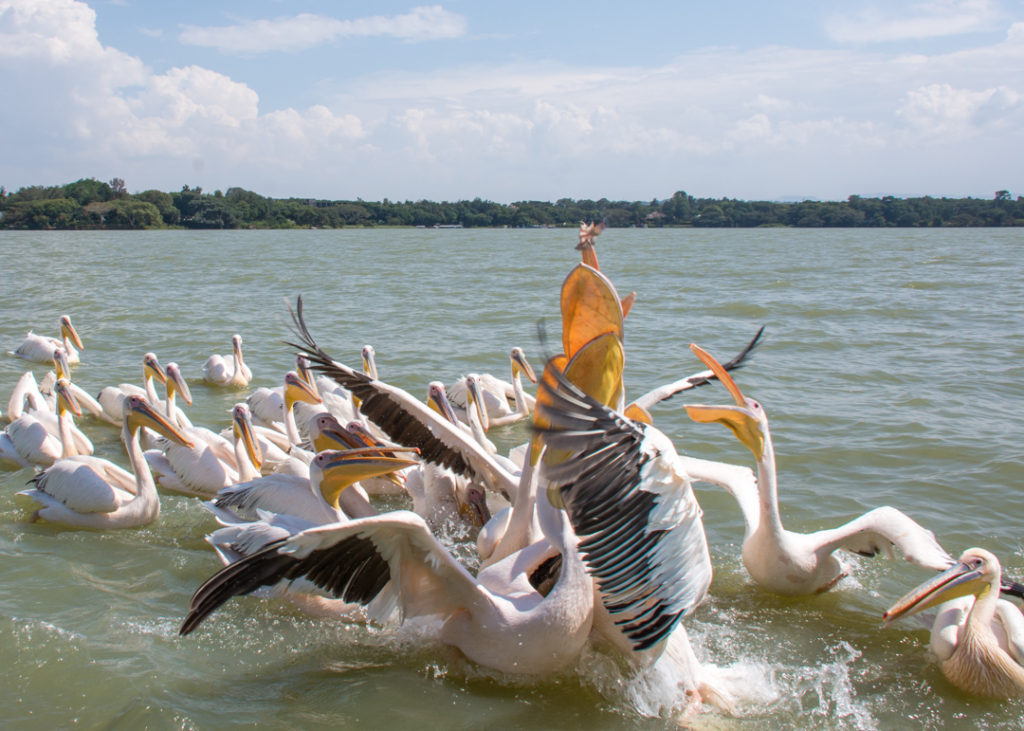
Besides its pretty shoreline and fresh, cooling breeze, Lake Tana is famous for its 30+ islands, on many of which are found beautiful churches and monasteries.
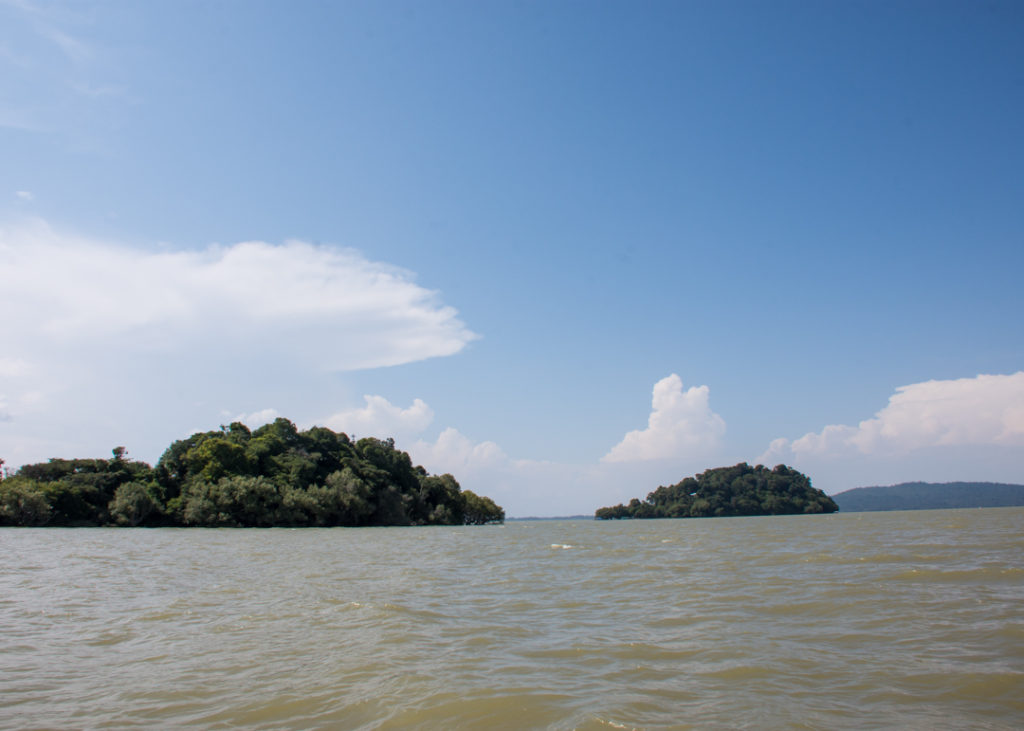
Docking on our first island, we started walking through a lush forest with flowering shrubs and coffee trees.
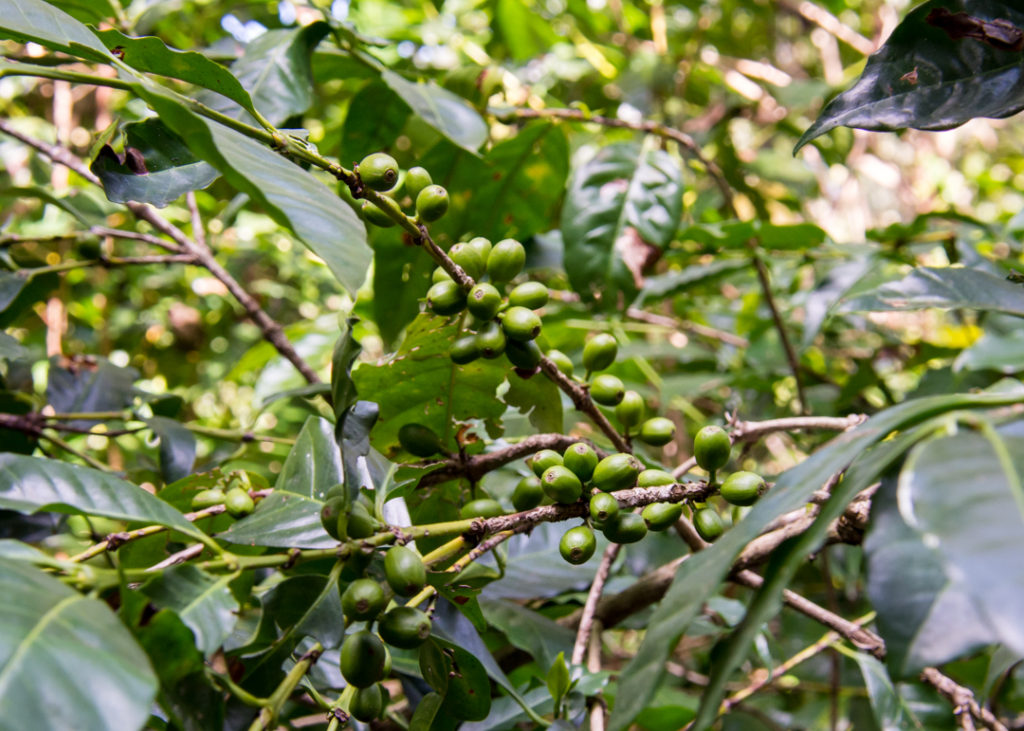
Local artisans have set up shop all along the trail and you can watch the making of (and buy) handicrafts such as silver cross pendants…
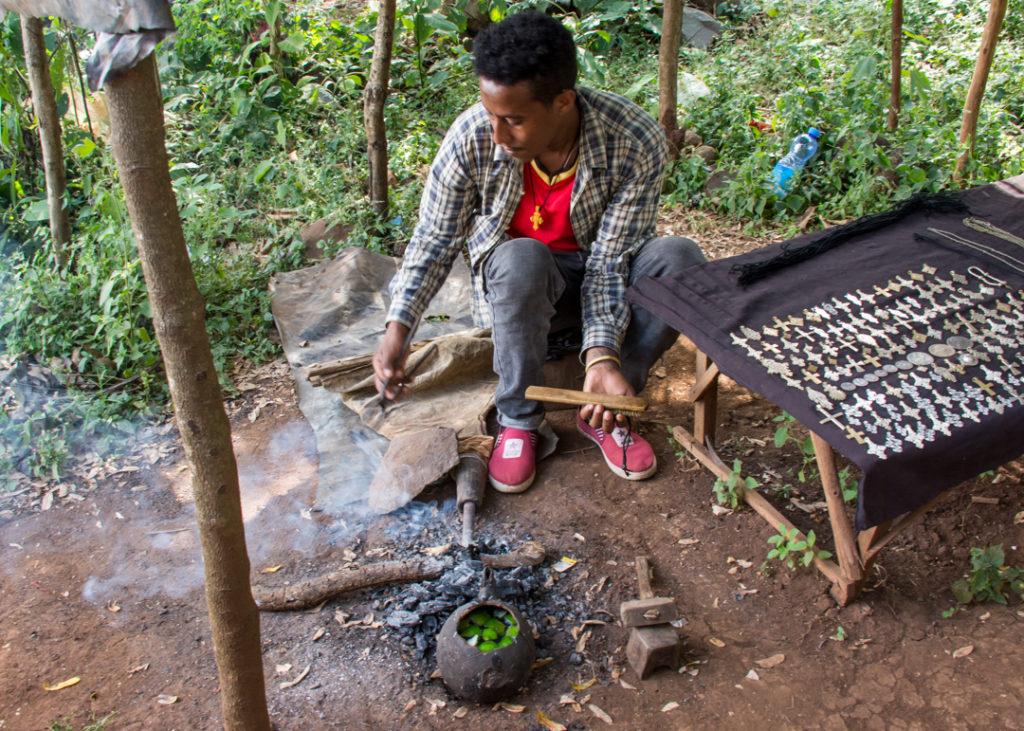
…vibrant paintings…
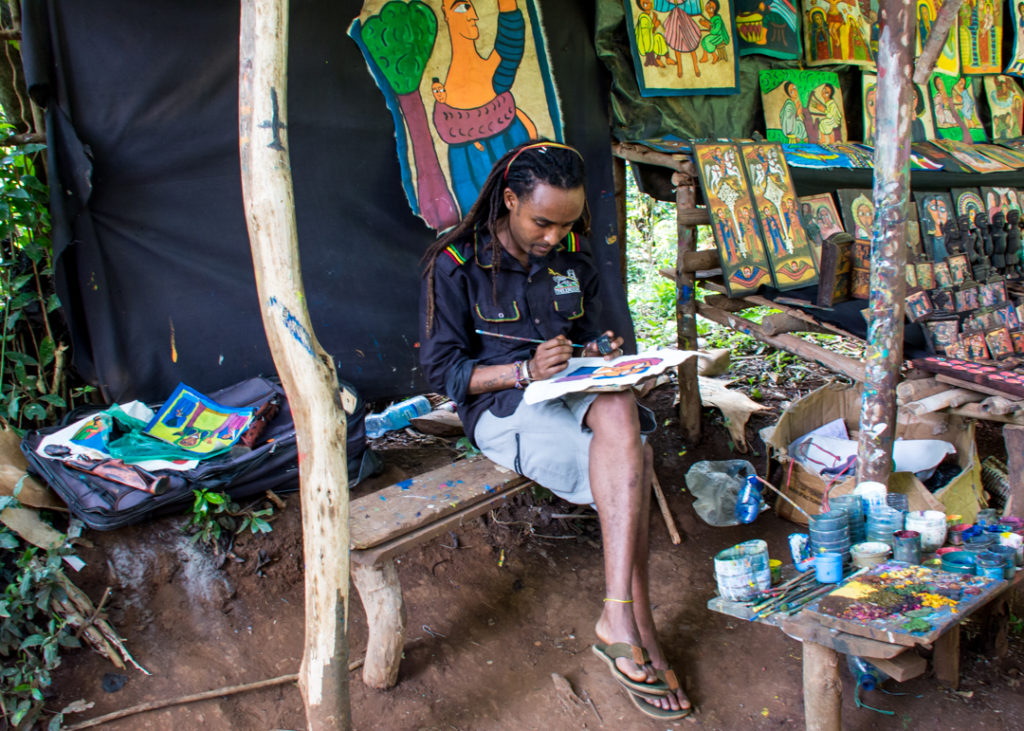
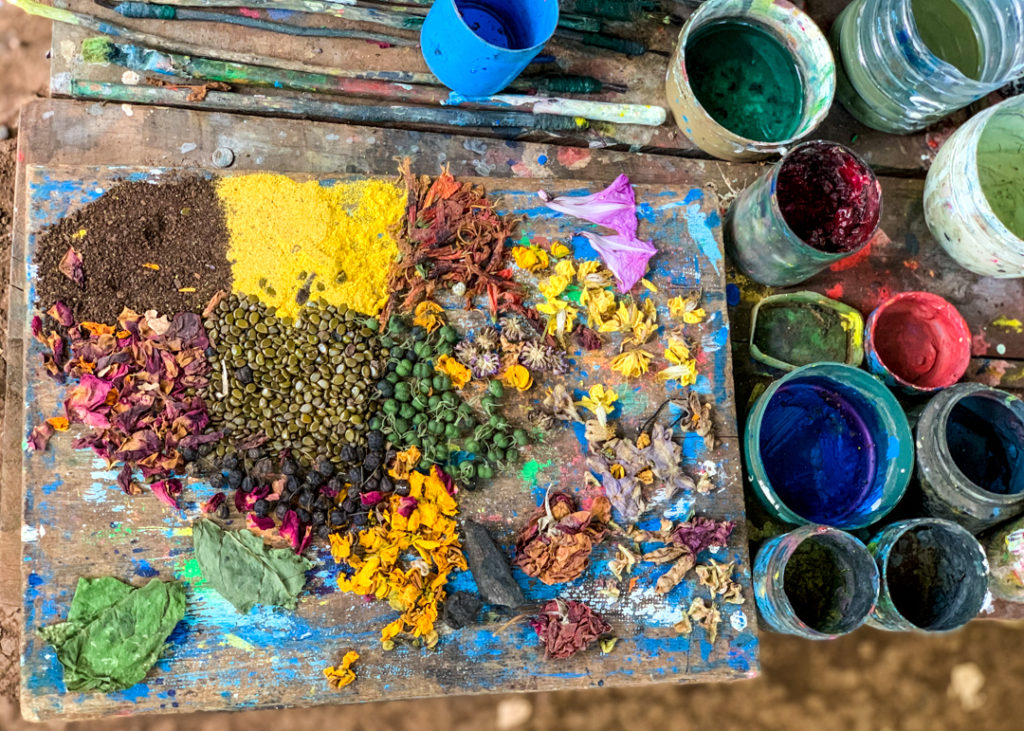
…and traditional cloth and shawls.
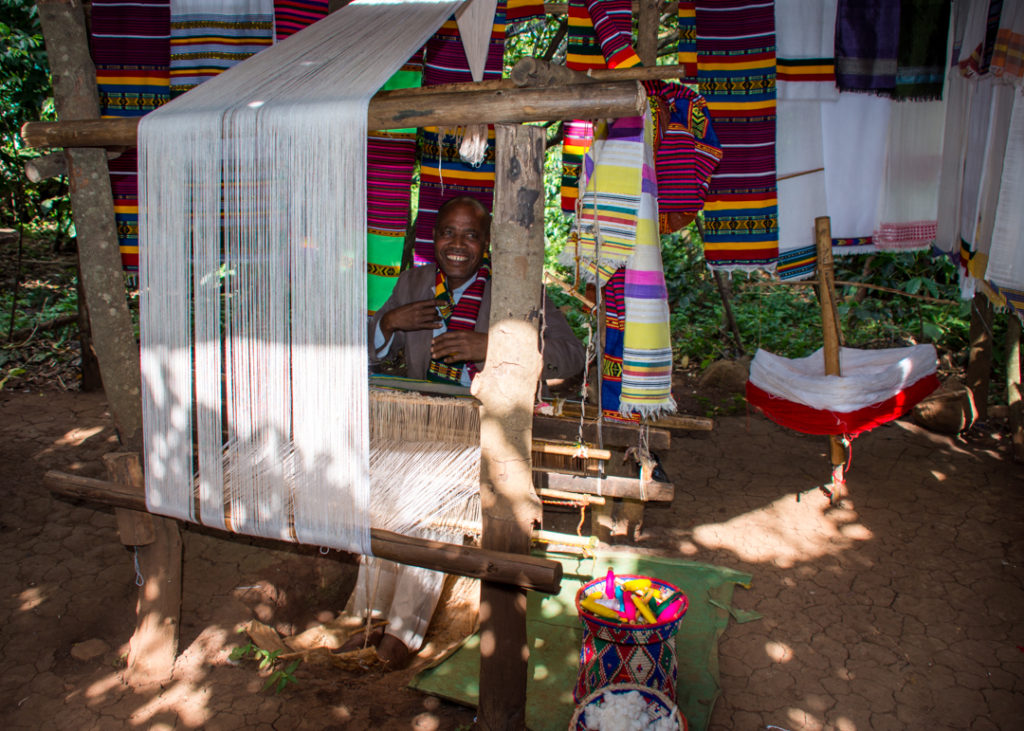
After about 20 minutes of walking, we got to the entrance gate of Ura Kidane Mihret.
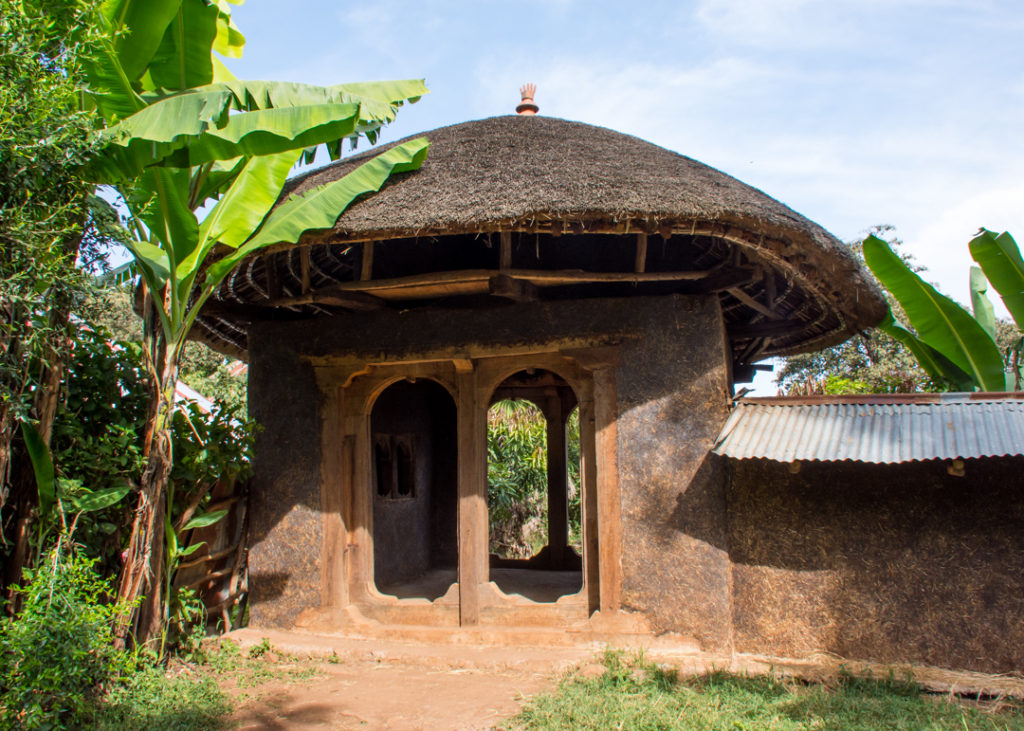
The most visited and the most beautiful of all the churches around Lake Tana, the 16th century circular church seems pretty ordinary from the outside.
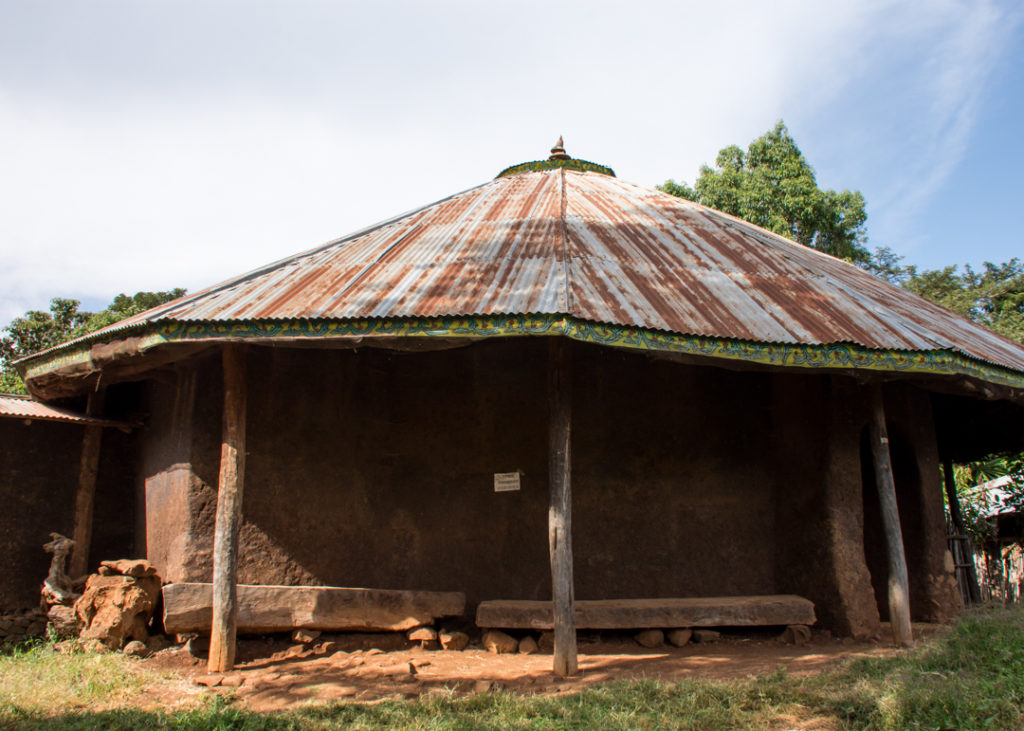
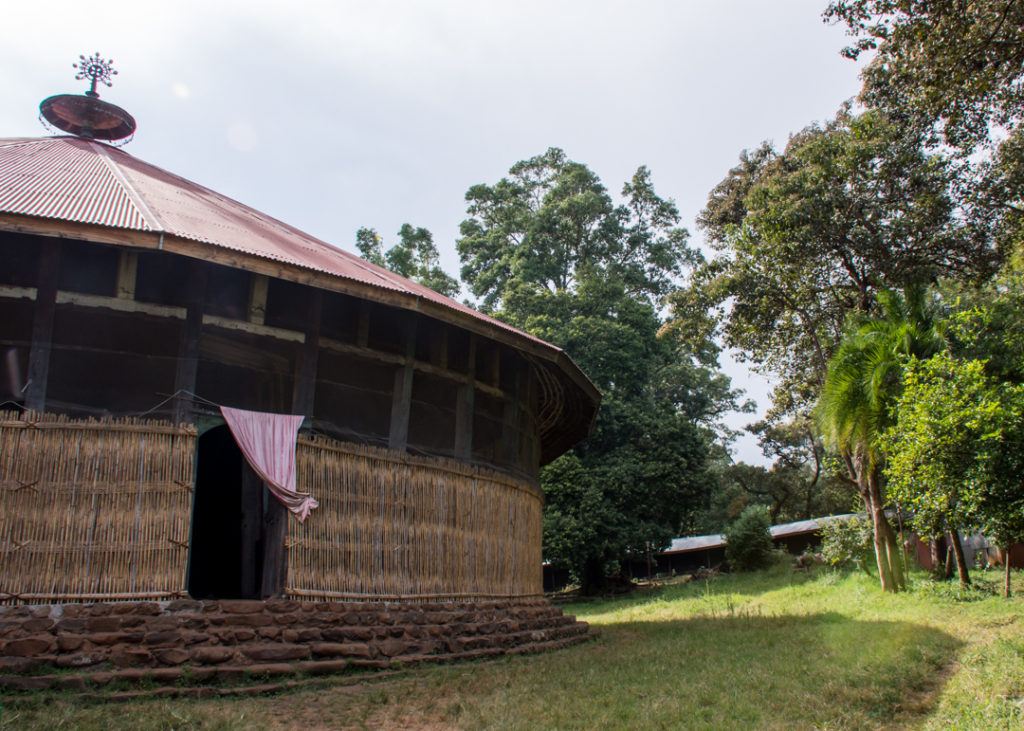
Once you step through its doors though, you’ll find a rather unique interior.
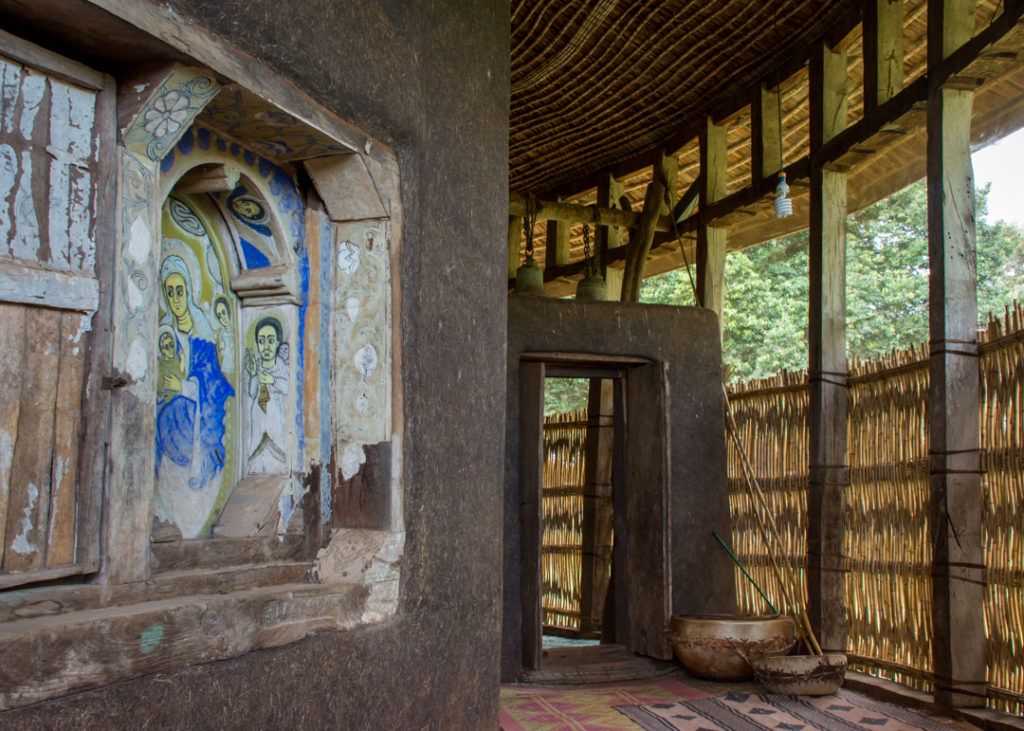
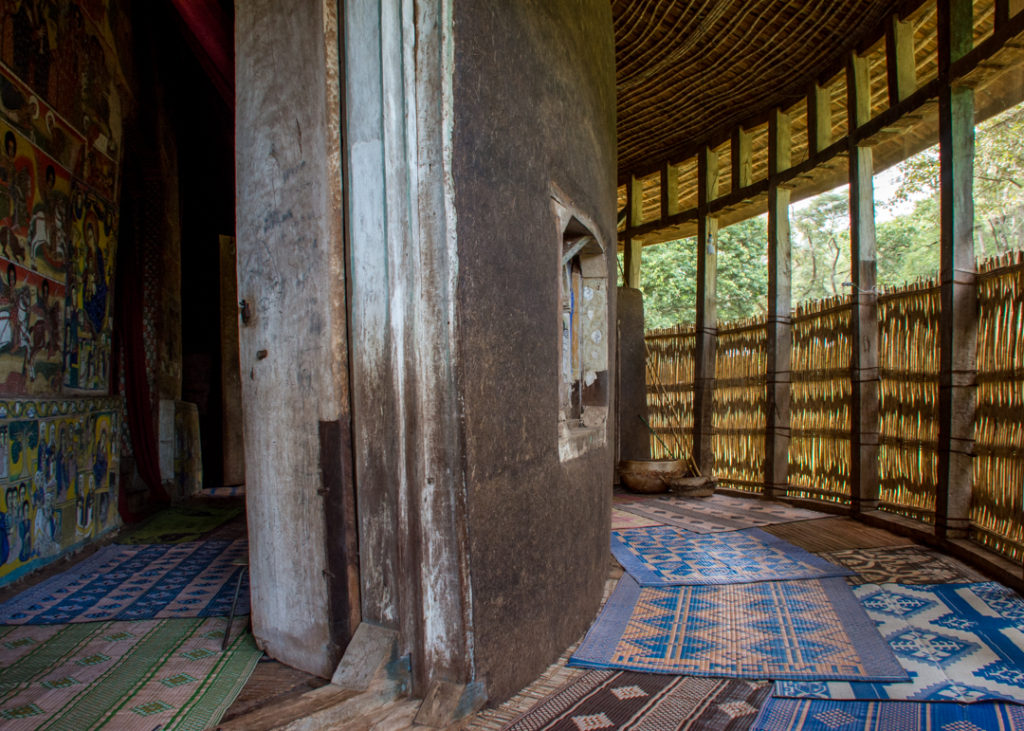
Look closely and you’ll find some rather intriguing drawings on the doors – were they sketches ready to be painted and never got finished?
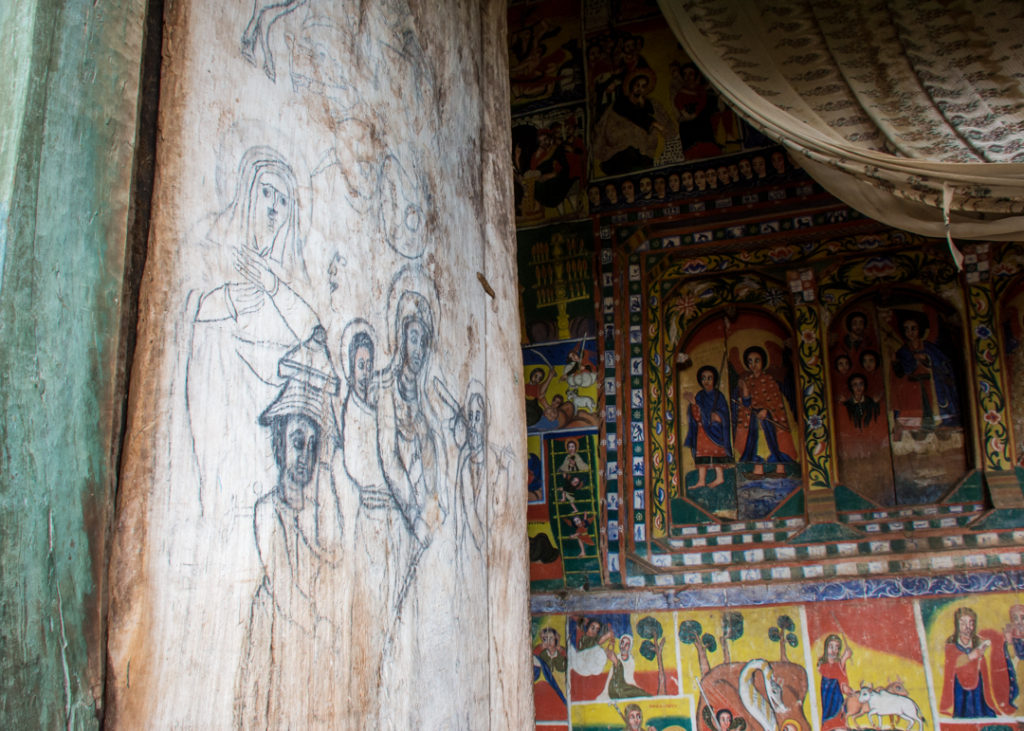
The colorful murals immediately brought to mind the church of Debre Birham Selassie which we had visited the day before in Gondar. Similar style of religious paintings adorned the walls, vividly depicting the medieval times in Ethiopia (which means be prepared for some gory details, severed heads, blood spatter, etc.).
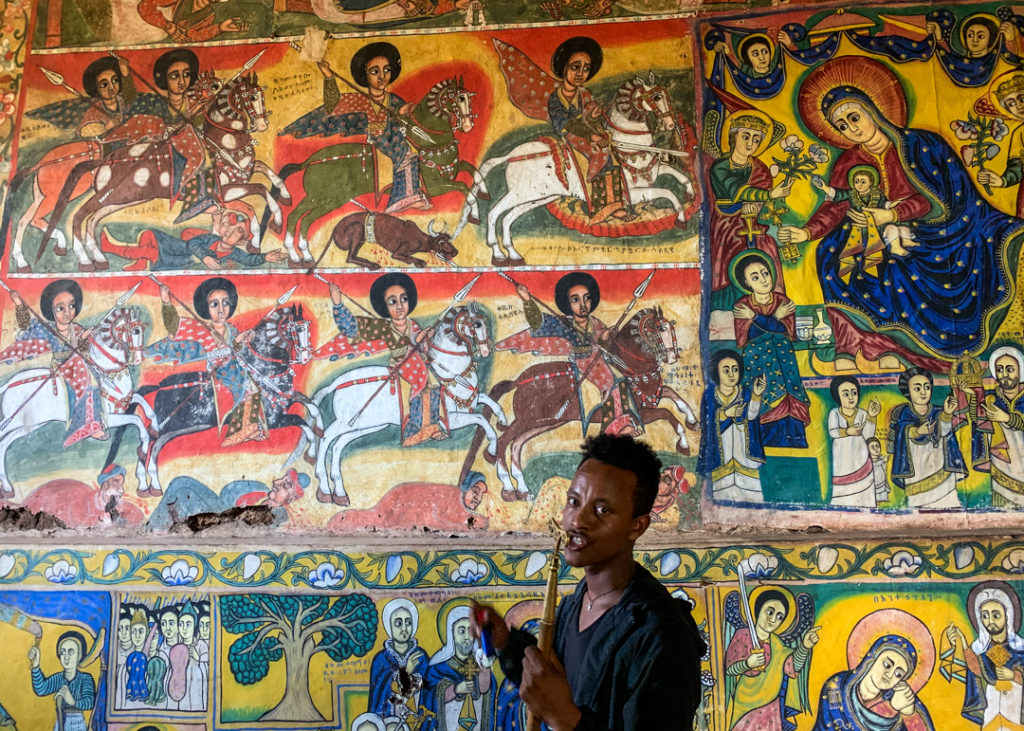
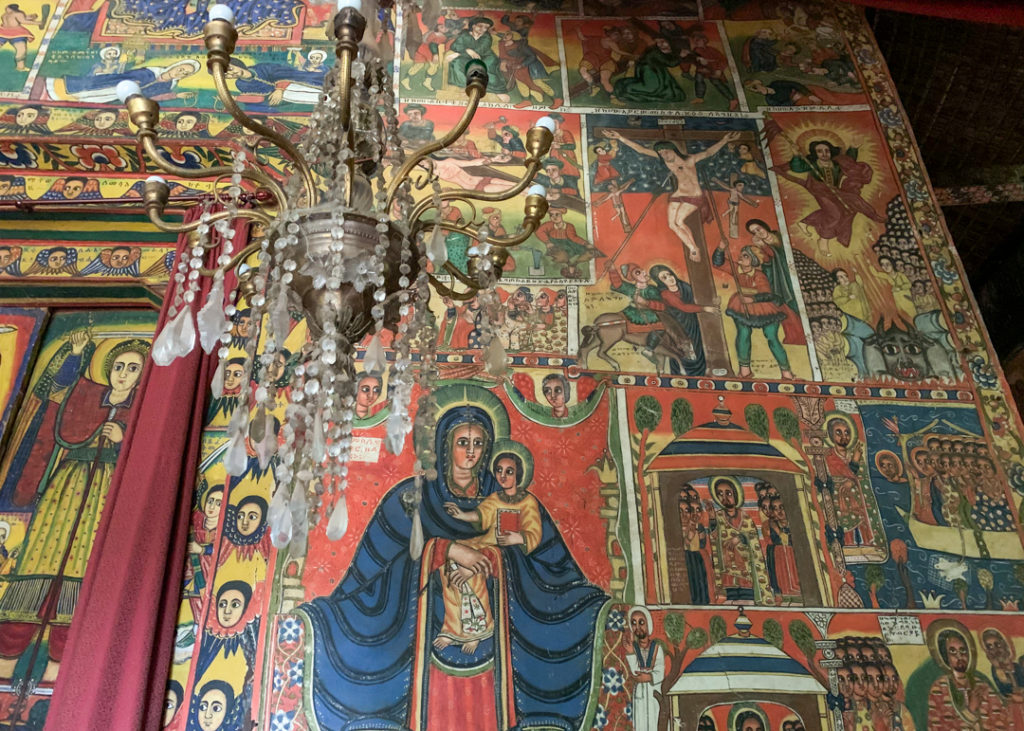
There’s not much else to see apart from the frescoes, but if you let your eyes wander long enough, you’ll find some more artistry hidden in the corners of windows and door frames.
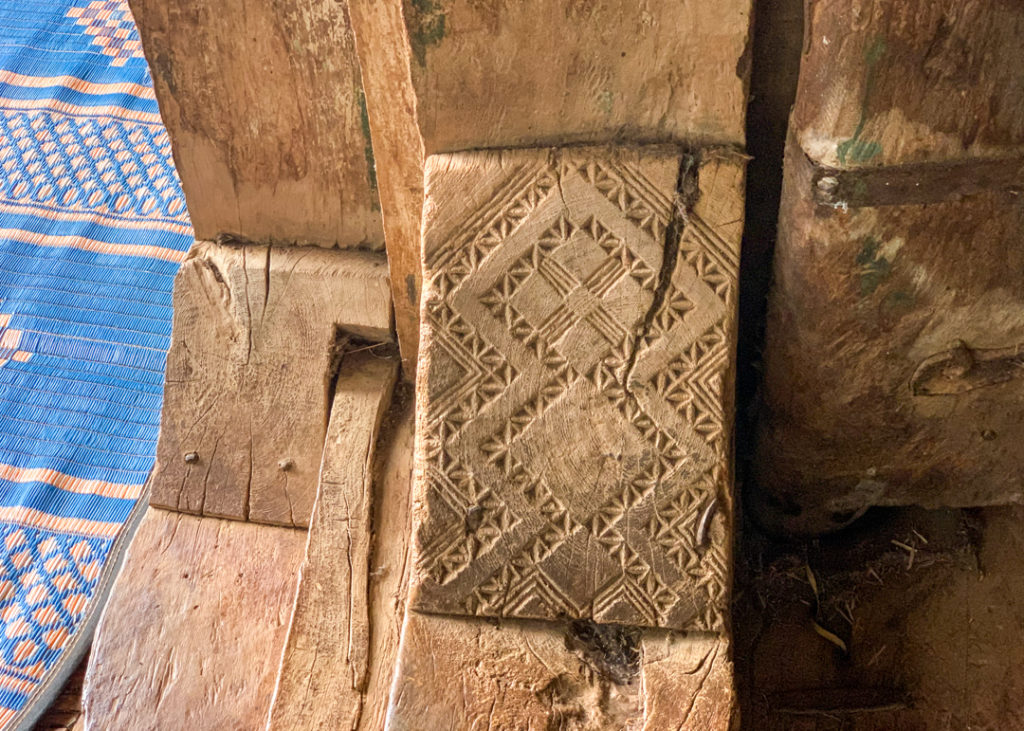
As we made our way back to the boat, I paid less attention to the vendors and more to the trees around us, a few of them playing host to cheeky monkeys.
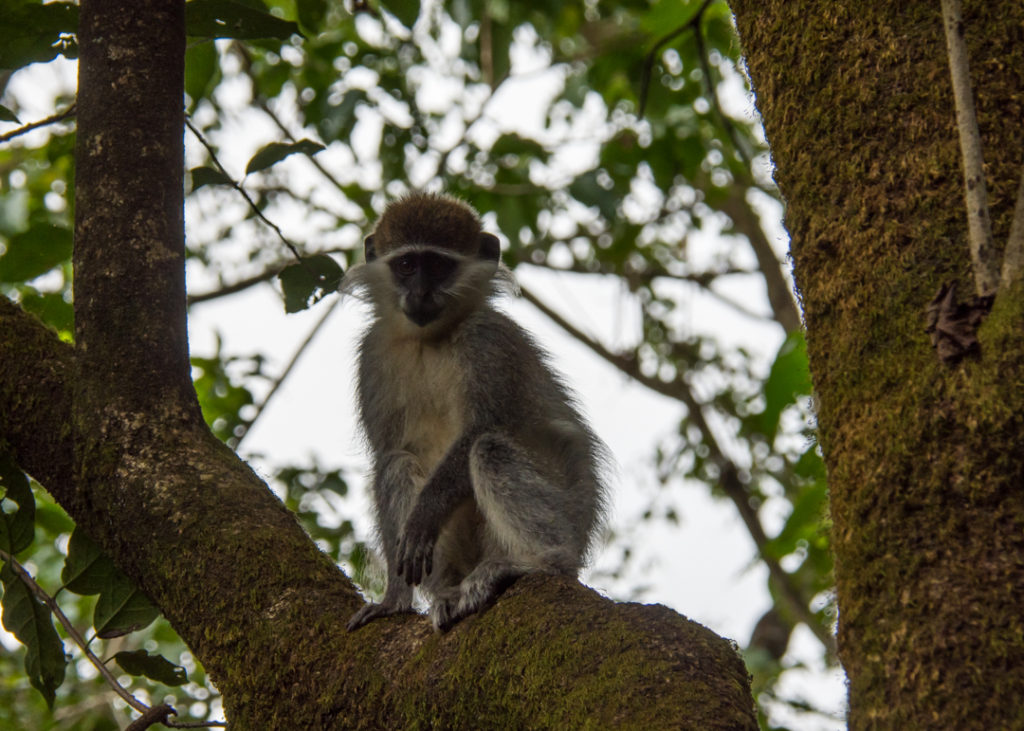
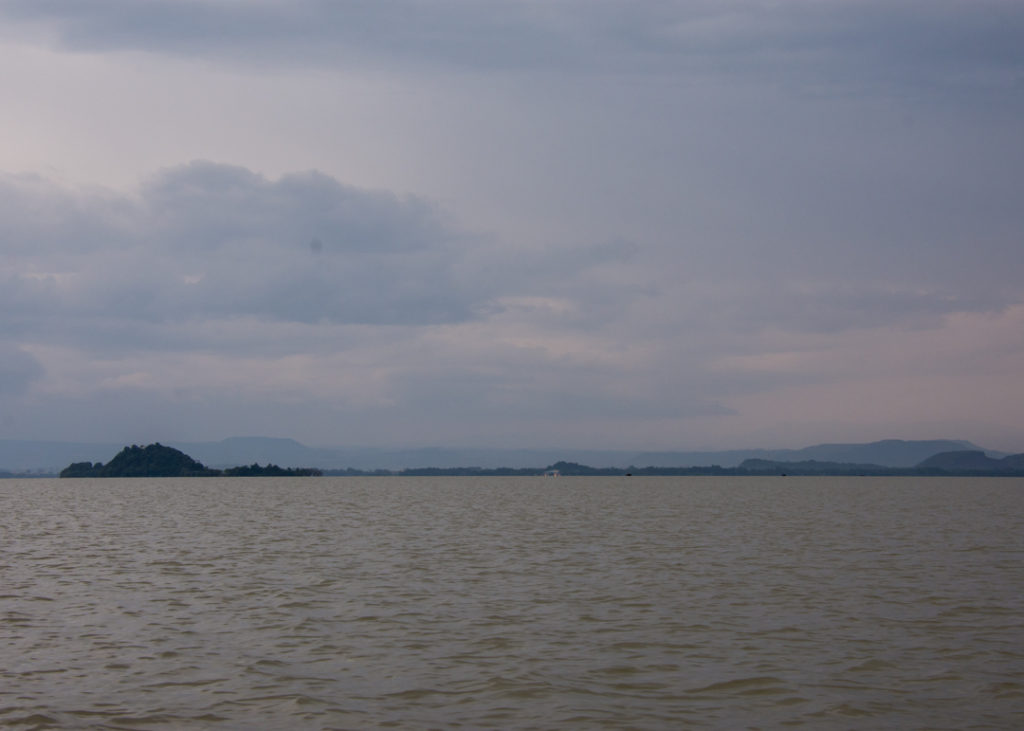
Another quick boat ride and we reached the similar though slightly less ornate church of Azwa Maryam.
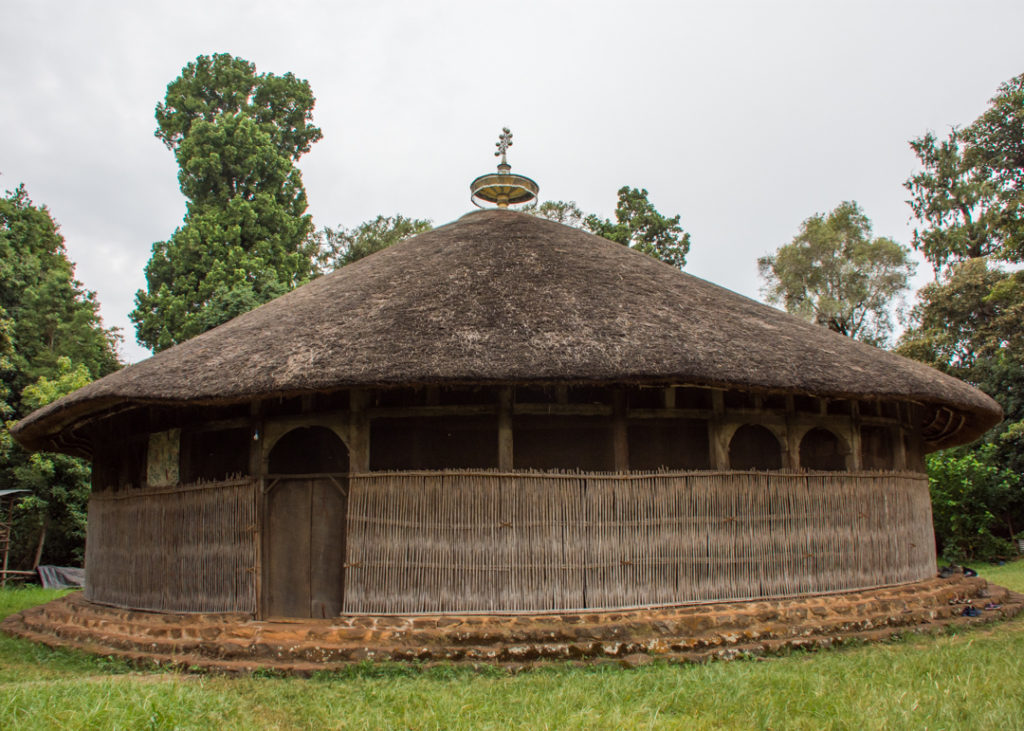
Nearly identical in style, a short visit will let you appreciate the small differences and the careful preservation.
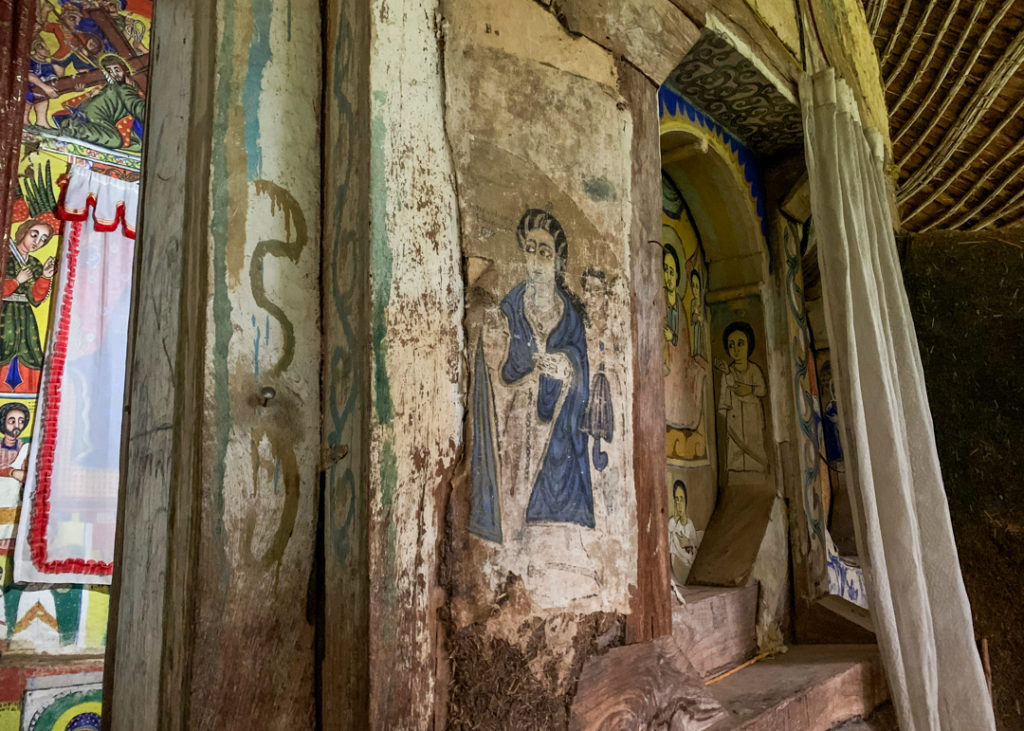
Besides visiting the churches and monasteries on the lake, another must when in Bahir Dar is to make your way to see the Blue Nile Falls. About an hour’s drive from the city center on a scenic countryside road, you’ll hop on a quick boat ride to follow the Blue Nile river downstream from Lake Tana (where it originates).
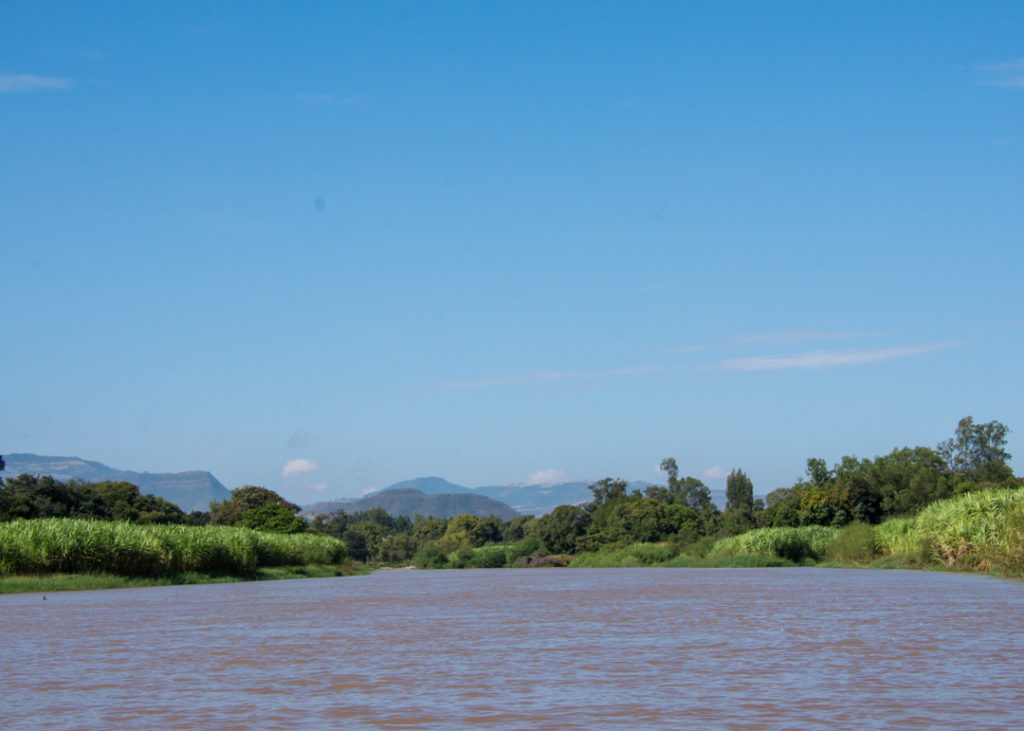
A 1 km path through a village brought us to one of Africa’s most spectacular waterfalls, only really true if you time your visit between May and October when the flow is at its peak.
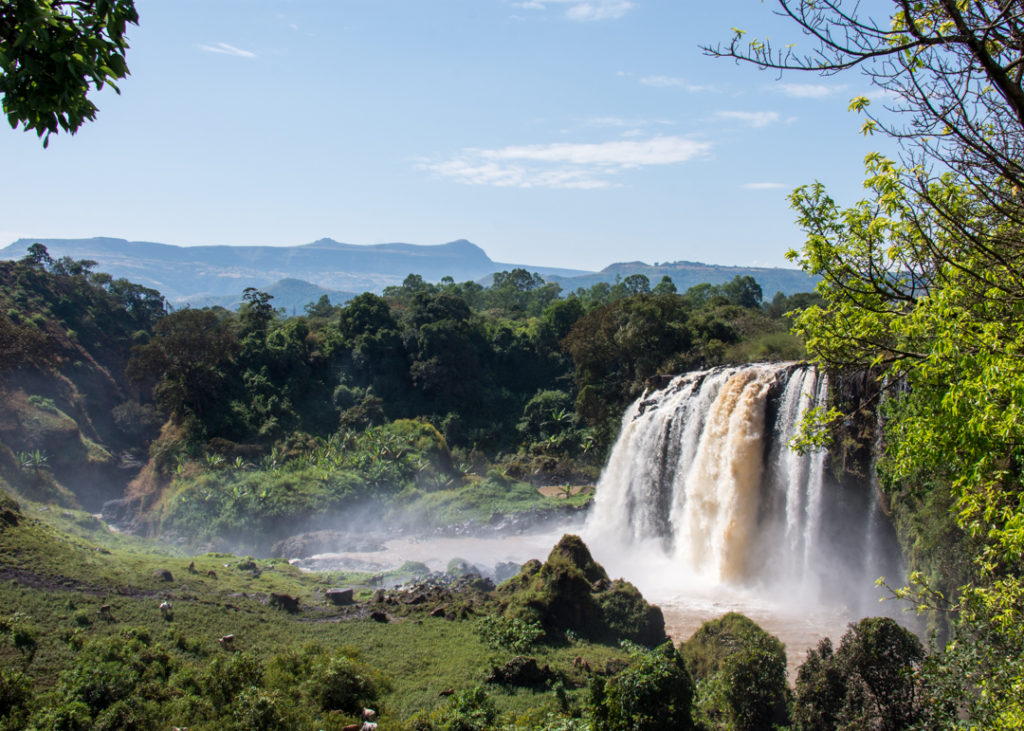
The falls have diminished in size since the build of an adjacent hydro-electric plant which unpredictably reduces the flow of water. If you’re lucky, you’ll get a good spray from the river plunging over a sheer 45-meter precipice and a close enough visual of what has been known locally for centuries as Tis Isat aka “Water that Smokes”.
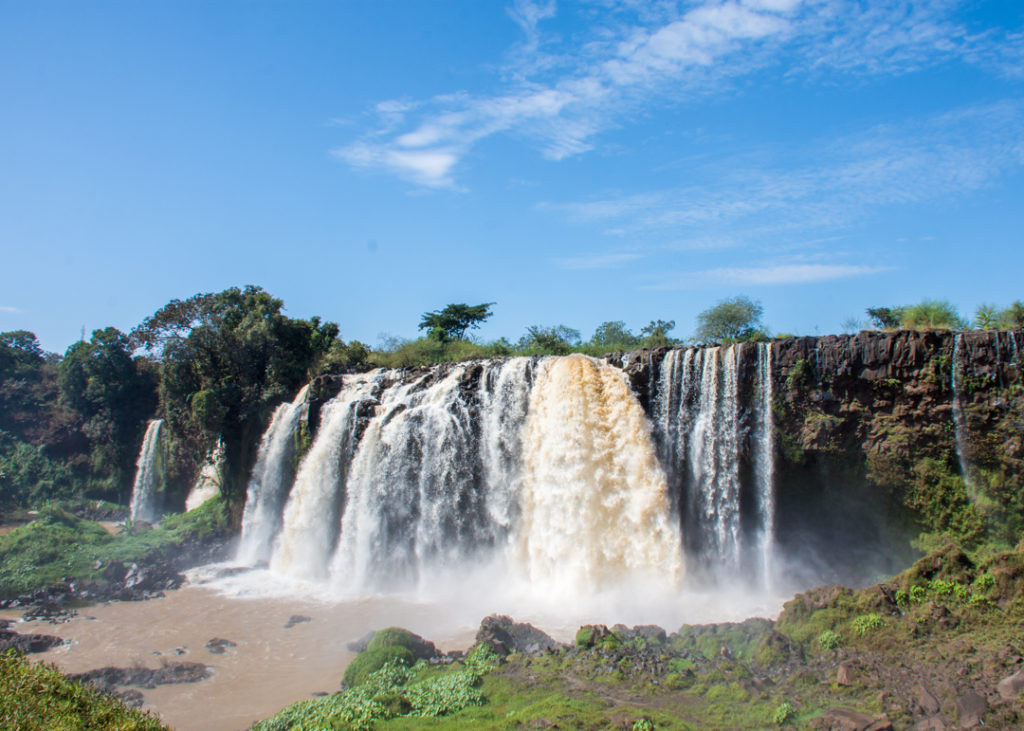
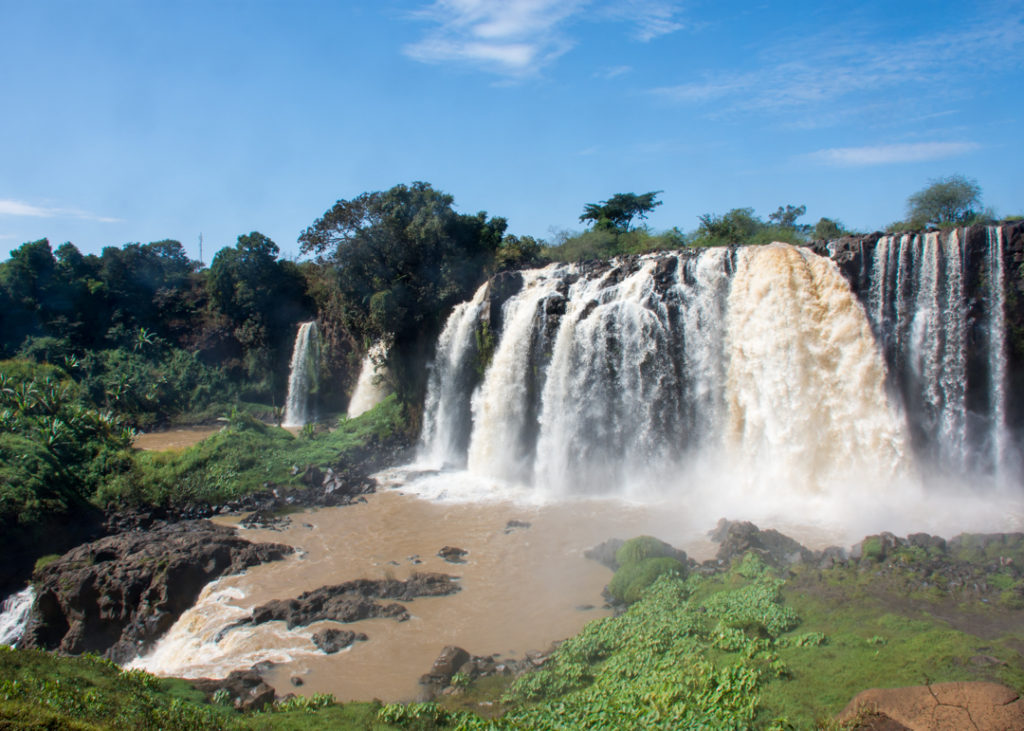
It’s the perfect viewpoint for a cup of hot and freshly brewed coffee.
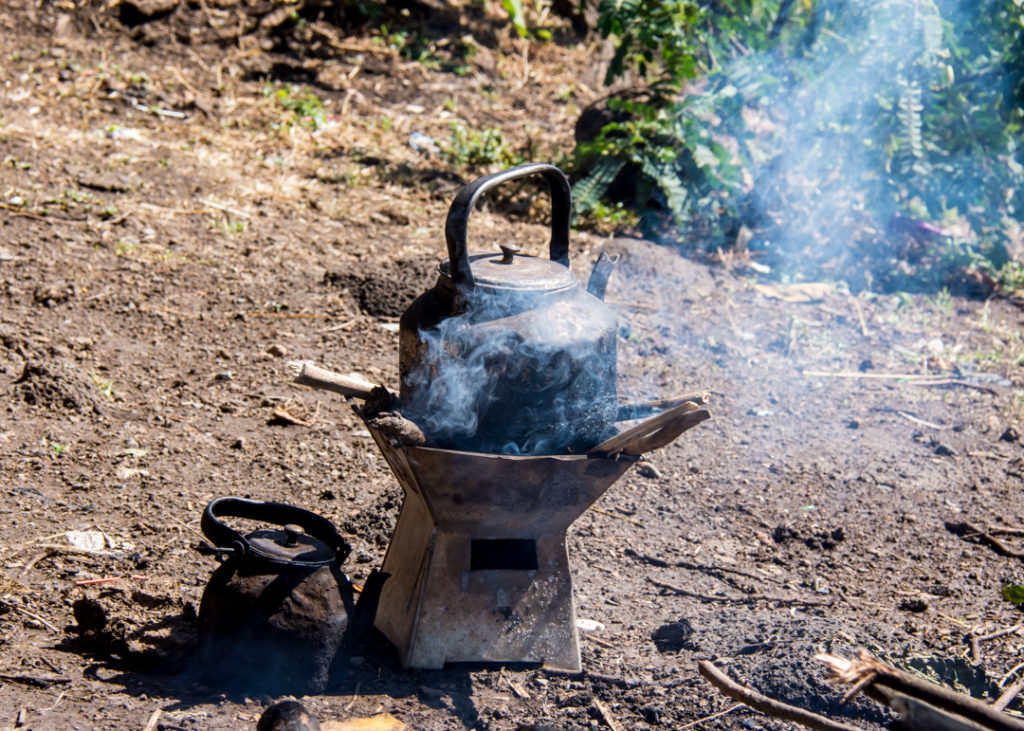
There are a few walking trails around and a suspension bridge that brings you to clifftop vantage points.
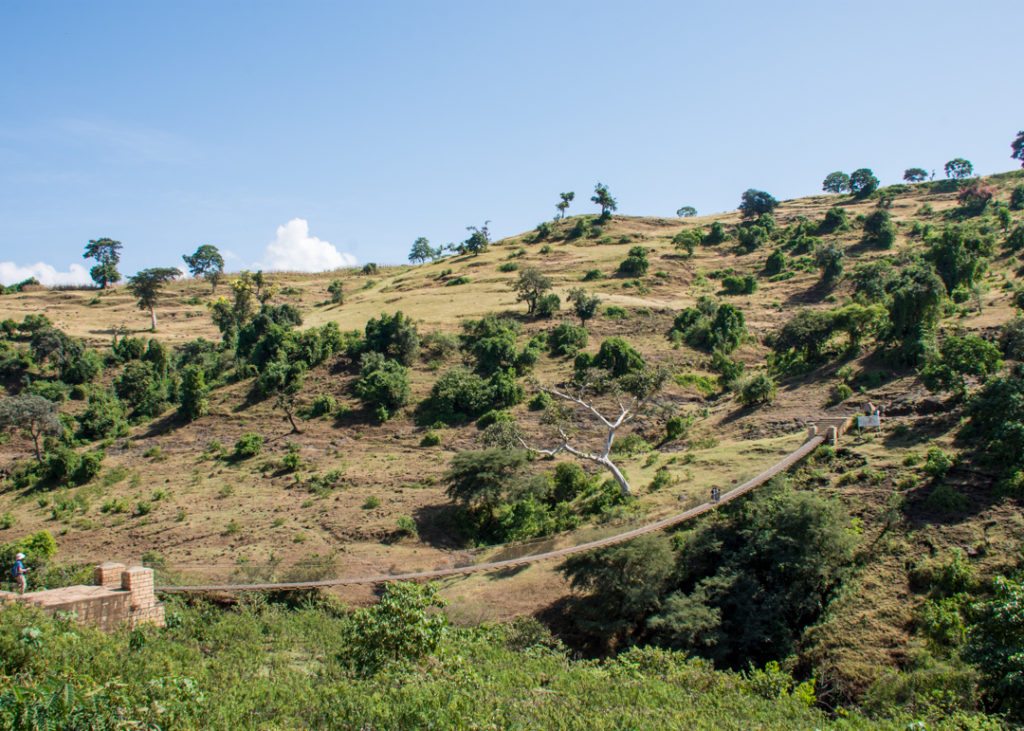
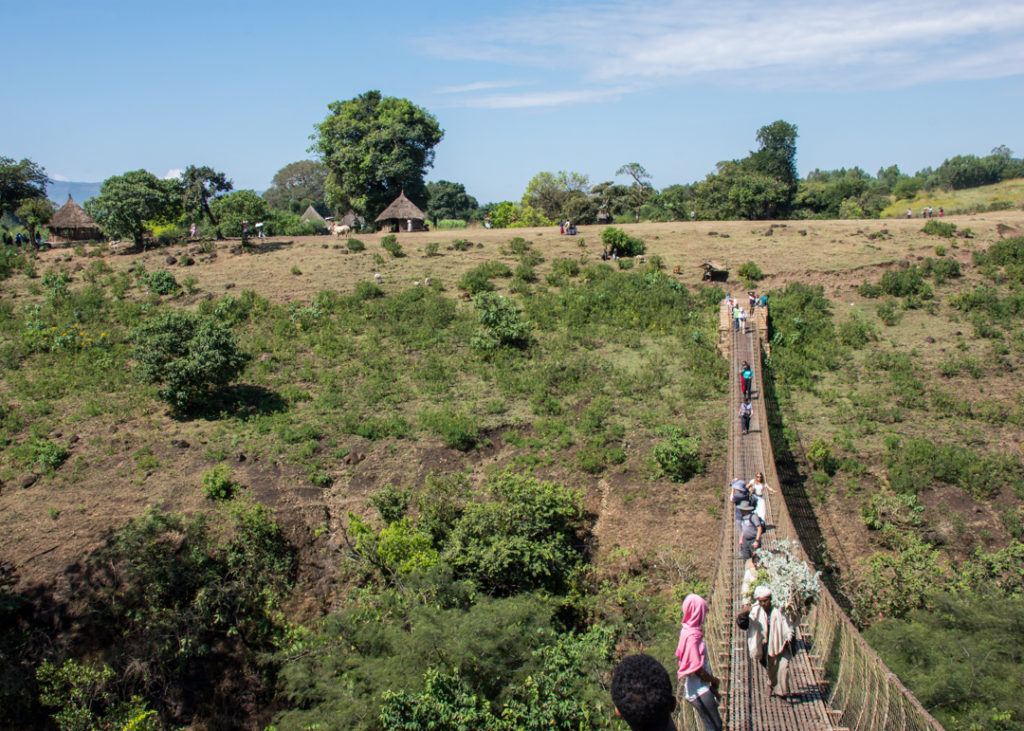
We enjoyed the crisp and clear morning before heading back to Bahir Dar to relax by the lake and enjoy the palm-tree lined promenade. Tomorrow is a long travel day to reach Ethiopia’s most famous cultural site…do you know what it is? 😉
